
The USUSA Academic Senate appointed a new senator for the School of Graduate Studies.


The USUSA Academic Senate appointed a new senator for the School of Graduate Studies.
During the USUSA Academic Senate meeting on April 1, the senate appointed Jamie Parry as the new senator for the School of Graduate Studies. Five members voted yes, one voted no and one abstained from voting.
The seat is an elected officer position, but after the elections earlier this semester, it was left unfilled. There was one person who was running for the position, but they dropped out of the race before voting began.
Academic senate consists of one senator from each of the colleges at Utah State, including the School of Graduate Studies, and is chaired by the USUSA Executive Vice President, Aly Cinq-Mars. They meet every Monday at 4 p.m., and meetings are open to the public.
According to Article 3 Section 4 of the USUSA constitution, to be eligible to hold an office within USUSA, a student must be “a fully matriculated and enrolled student at the appropriate campus or Service Region and program and/or college for the entire term in office, excluding concurrent enrollment.”
Parry is currently finishing her undergraduate degree in political science. She will start as a graduate student in the fall in the master’s program for anticipatory intelligence program. She was accepted into the program in March and became a fully matriculated graduate student on April 1, the day of the appointment.
Parry ran for student body president in the Executive Leadership Board elections, held on Feb. 28 and 29. The election for grad studies senator was held on March 4 and 5.
When asked over email if she would have considered running for grad studies senator in the election, Parry wrote, “Per the USUSA bylaws, I am also unsure if I would have been eligible to declare since I wasn’t an officially matriculated grad student until this week.”
According to the USUSA elections bylaws, a student must be fully matriculated at the corresponding campus and admitted to the appropriate college to run for a position.
USUSA President Abe Rodriguez was at the senate meeting to present Parry’s name for approval.
“If we weren’t certain about her eligibility, we wouldn’t have considered her name in the process from the beginning,” Rodriguez said.
He explained the process he went through to appoint a new grad studies senator.
“With this particular scenario, I obviously wanted this process to be the most appropriate process possible,” Rodriguez said. “So I decided that, well, because this is someone that will be serving next year for the 20242025 academic year, I thought it’d be most appropriate to involve our president-elect and our executive vice president-elect in this process.”
According to Article 3 Section 5 of the constitution, it is up to the USUSA President to nominate someone to fill any vacancy in a USUSA office. The nominee must meet the eligibility requirements for that position.
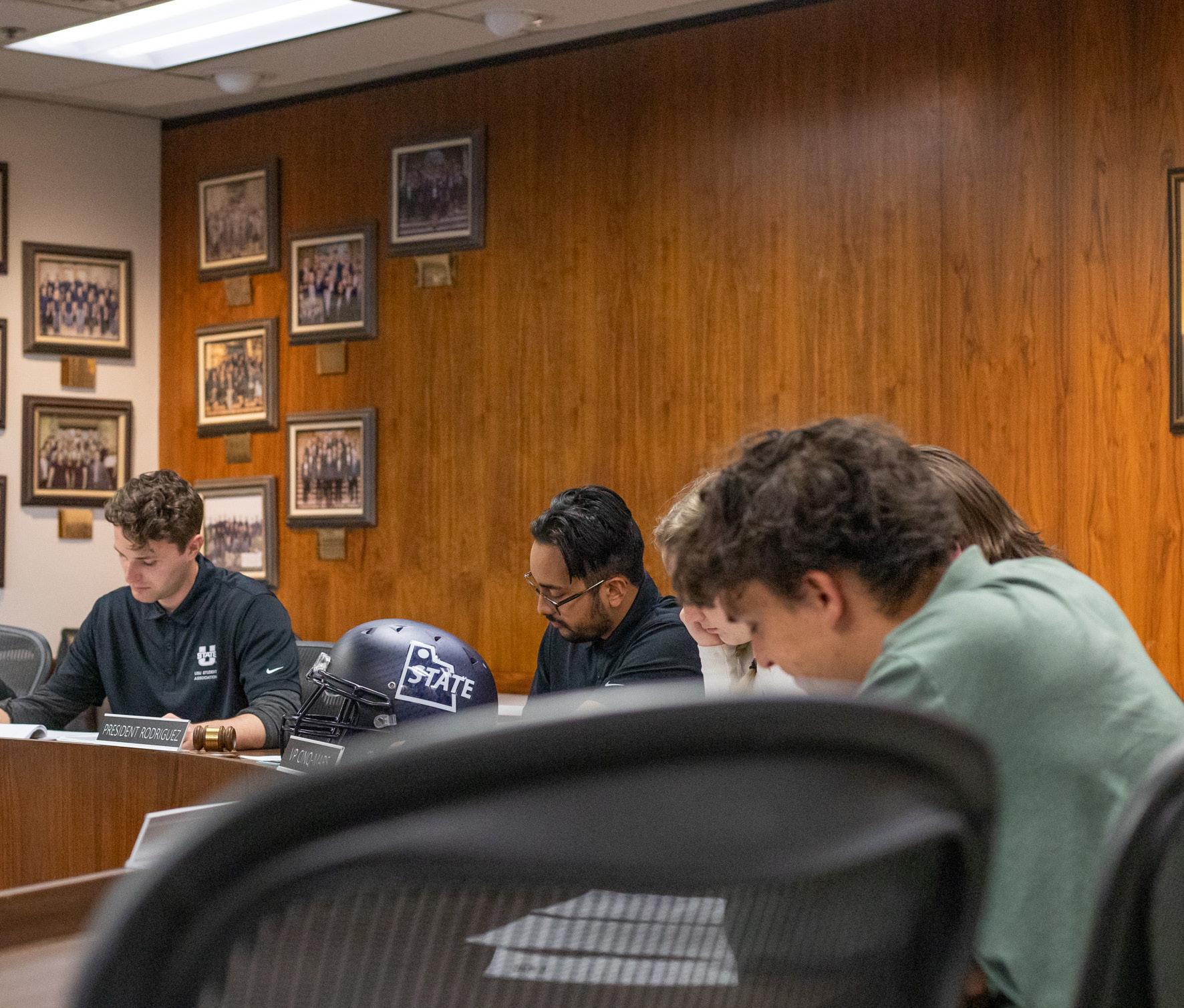
Richard Cutler, the vice provost of graduate studies, who approved them.
“We knew we were considering two. We had received recommendations from the vice provost of grad studies, or received the green light, as it were,” Richey said. “And then we called them in for an interview. And then we were just kind of equals in the deliberation process, all three of us discussing what we were looking for.”
The fact that the senate would be voting to approve the appointment of the new senator was not in the agenda prior to the meeting.
Maggie Eguko, the USUSA chief of staff, sends out the agendas every week for Academic Senate, Executive Leadership Board and Executive Council.
“We send out the agendas every Friday,” Eguko said. “Every senator and every officer has the opportunity to email back and amend the agenda as they see fit. So if they email back and amend the agenda, those agendas are re-sent out before the meeting on Monday.”
Senate meetings are divided into the following categories: public forum, president’s report, unfinished business, new business and council updates.
According to Eguko, if the appointment for the senator position had been done during public forum, it would not have needed to be on the agenda. But Rodriguez presented the name for approval during new business, and anything in that section needs to be on the agenda.
Cinq-Mars did pass a motion to amend the agenda and add the appointment to new business at the beginning of the meeting.
Rodriguez said when deciding how to go forward in the process, he followed what former USUSA President Clara Alder did when she had to appoint a College of Engineering Senator in 2022. He also reached out to her for advice.
In order to choose a nominee, Rodriguez gathered a committee consisting of Matt Richey, the USUSA president-elect; Brooklyn Ward, the USUSA executive vice president-elect; and Kevin Webb, one of the advisers over USUSA.
Rodriguez said he chose Webb for the committee because he directly advises the grad studies senator.
The committee came up with two names as options, and Rodriguez submitted them to
Before the senate voted, there was discussion between the senators. Questions were asked about the nomination process and why Parry was chosen.
College of Science senator Jaxton Winder started the discussion by asking why specifically Parry was chosen over the other candidate.
“When we asked specific questions like within the charter itself, she already knew exactly what she would do looking forward. She really did do her homework with the charter itself,” Rodriguez said.
Winder said concerns he raised during the meeting were not against Parry but rather out of concern that the person representing graduate students is the best person for the job.
“Being a graduate student adds a whole new host of issues and things to work with, especially when you’re going to be seeing a lot more non-traditional students, you’re going to be seeing a lot more international students,” Winder said. “The majority of graduate students are in this weird middle ground where they’re kind of employees of the university, especially if they’re getting any stipends or research assistants, TAs and whatnot.”
Parry has been enrolled in a few graduate level courses during her undergraduate education.
The current grad studies senator Sarah Pope also spoke up during the meeting, saying that in the future, she thinks it would be beneficial for the committee to talk to the person currently holding the position, because the charter isn’t always exactly what the position entails.
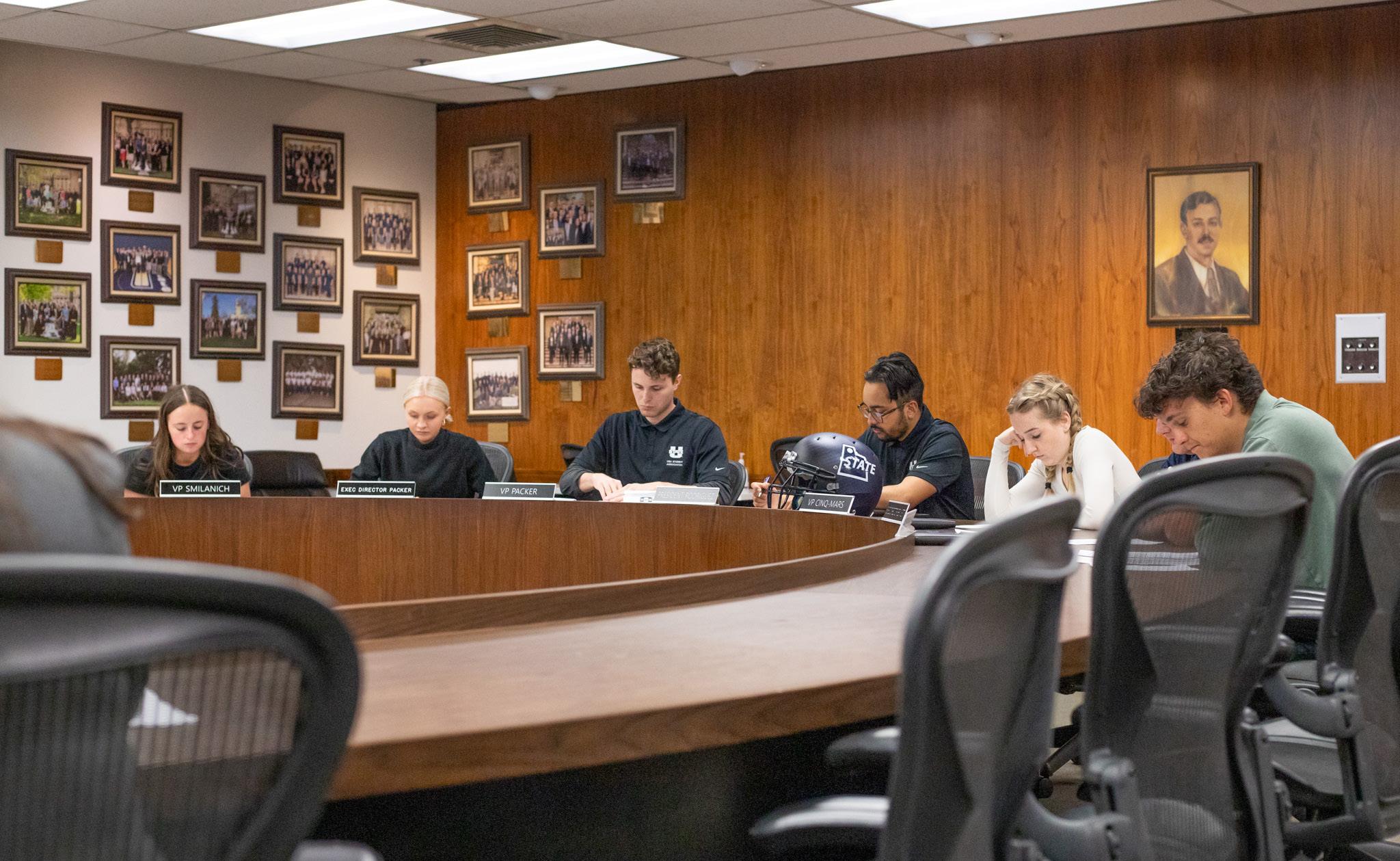
Pope said she was told who the committee was considering, but no one ever asked her about the position, what qualities they should be looking for and what questions they should ask.
“I feel, I guess, slighted in a way,” Pope said. “I don’t think I should choose. I don’t think I should have a vote in that because it’s not my student government, but I do think that at least speaking with the person in that current position, regardless of the position, really should probably be consulted on the interview, or at least in terms of questions and qualities and things like that.”
All three students on the committee to appoint the new senator were undergraduate students.
Pope has been the grad studies senator for two years. She said the position is different from the other senator positions because of the nature of grad students.
“I think it’s kind of unnecessary to have the full grasp of it,” Parry said. “Every grad student is going to have a different perspective.”
In the senate meeting, Winder asked, “How are you personally reconciling with the fact that the proposed candidate is not currently a graduate student and doesn’t have the experience of the graduate student?”
Rodriguez responded, saying even in his position, there were things he did not have personal experience with, but he was willing to listen, learn, see what the issues were and what was going on and do his best to advocate for students who have had different experiences. He added it is like that in every position.
“The graduate study senator also has a counsel from a graduate student from each different college. So with that counsel,
I’m hoping to include lots of different perspectives to help fill in the gaps that maybe I don’t have that full experience,” Parry said. “Utilizing what my perspective is already, but also ensuring that my graduate studies council has diverse enough perspectives to fill in what those concerns are, will enable success with how I run this position.”
Parry was not at the meeting and didn’t know she was chosen for the position until after the senate voted to approve her.
The USUSA officers for 2024-25 school year, including Parry, officially started their term after being sworn into office at inauguration on April 19.
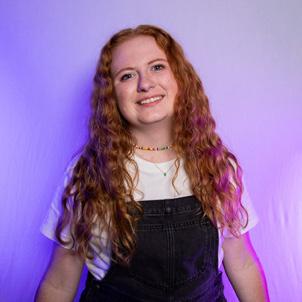
Caitlin Keith is graduating in two weeks and leaving behind a legacy of quickstop hot dogs, misnomered headlines and being the local expect on police dog Sage.

In a display of community spirit, the fraternity Pi Kappa Alpha, or Pike, at Utah State University rallied to raise $12,000 in one week for the Firefighter Support Foundation.
Mason Reed, external VP for USU’s Pike chapter, put that number into perspective.
“We ended up raising 12 grand, which is three times what we’ve ever done,” Reed said. “That’s usually the amount we raise for the whole year.”
Fundraising efforts were spearheaded by the fraternity’s members, who planned various events such as Bingo Night, Pike Carnival and Magic Pike to raise money.
Pike organizes fundraisers throughout the year, typically for Primary Children’s Hospital, often in conjunction with USU’s Aggiethon.
According to Van Switzer, current president of the chapter, they don’t see where the money raised for Primary Children’s goes, so choosing a local foundation had a special impact.
“Being able to give it to a local fire department where we know the guys there and getting to meet who we were helping also helped motivate everyone,” Switzer said.
Switzer said they donated to the foundation as opposed to going through Logan City to ensure the money raised would go straight to the fire department.
According to Reed, money raised through the city is often divided among different agencies. Because Pike raised money for the foundation, “the money donated goes to anything the city won’t cover for the fire department,” Reed said.
The funds will directly support the department’s ongoing operations and resources for firefighters.
The foundation webpage says, “We inspire citizens and businesses to unite in a crucial response to support local firefighters’ mental health and wellness through generous donations of time and money.”
According to Switzer, this includes funding for training events, social gatherings, fitness classes and mental health resources.
“The city can only do so much,” Reed said. Pike made an effort to utilize campus resources and
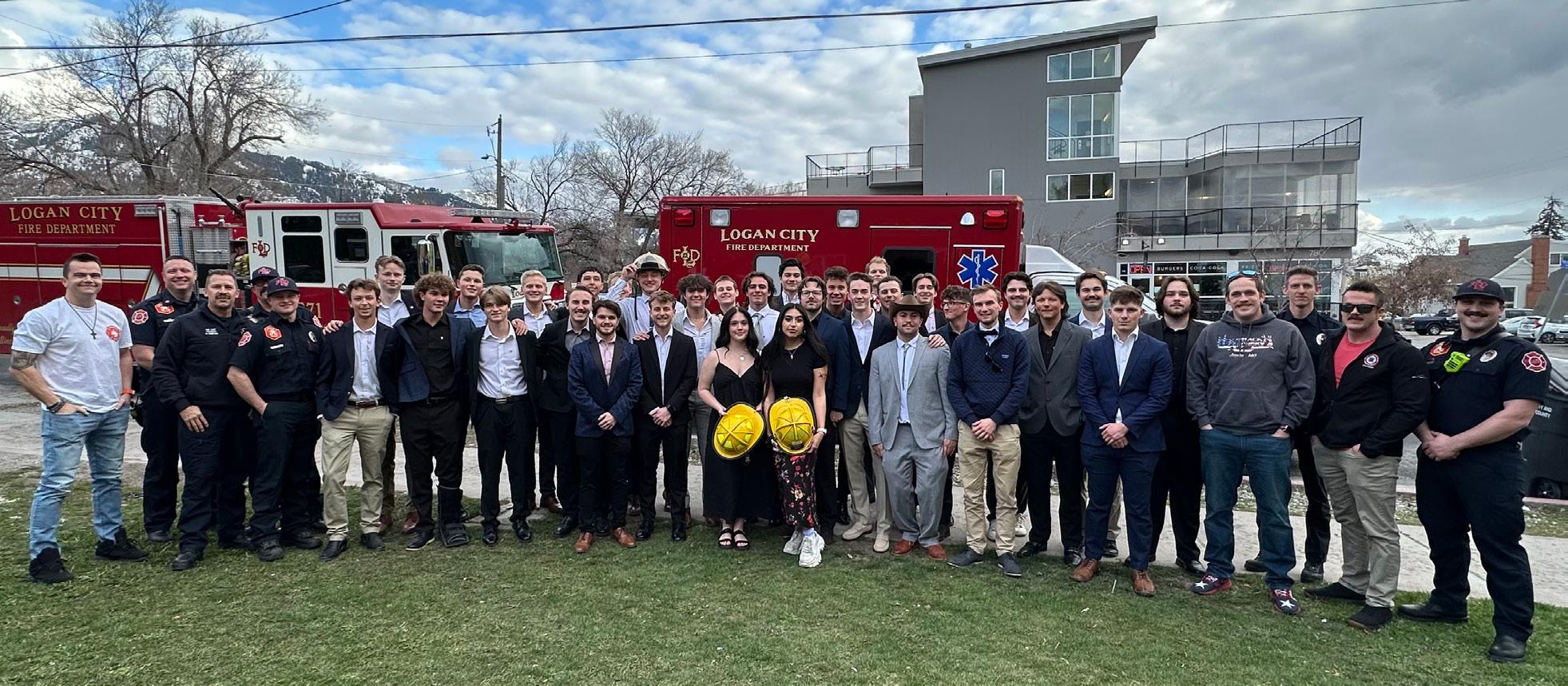
• The council discussed the last PoBev of the year which, took place on April 20.
• One of the Directors of community engagement is partnering with the Staff Employment Association for a blanket tying event in the TSC.
engage both USU’s student population and the Cache Valley community at large.
“We used a lot of crowdsourcing,” Switzer said. “Reaching out to families and being out on the Quad.” They specifically reached out to campus sororities to contribute and help raise funds.
“The whole plan was to get shorties involved, the girls on campus,” Reed said. “It gives them something on their resume. It’s big for business majors especially.”
Reed wants to build on their success and continue to connect with campus and the community for future fundraising efforts.
“We want to try to make ourselves more known on campus, maybe get the crowds we don’t usually get around the house,” Reed said. “We want more community support too, and that’s something we’re going to strive for next year.”
Pike hopes to do more fundraising for the foundation in the future.
“I know the fire department didn’t really know what to expect, but now they do and are super excited for next year to see how we’re able to get the community involved,” Reed said. “I think we could double what we did this year with that type of support.”
To donate directly to the foundation, visit firefight. support/foundation.
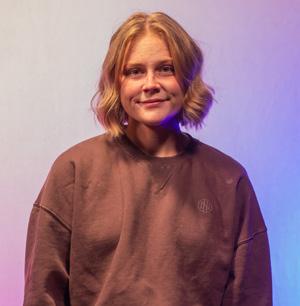
Aubrey Holdaway is a junior studying print journalism. She loves doing anything outside, the band Pinegrove and listening to hours of true crime podcasts.
— a.holdaway@usu.edu

• VP Packer announced that Government Relations Council applications are open. 4/9 4/16
• The council voted to pass legislation to officially create the HURD Hall of Fame.
• VP Smilanich made changes to the Logan VP position description, adding the Campus Store advisory committee to the committe assignments.
• Executive Director Packer made changes to the position descriptions for Events Executive Director and for the different events director positions.
• Executive Director Garces made changes to his position description.
The annual Robins Award Ceremony was held on April 5 in the TSC Ballroom. The evening ceremony celebrated 16 different Aggies for either their academics, leadership, athleticism, or overall achievements from this past school year.
thing because everything I do is for people like me, I always tell my friends, that I’m here for the people. That’s what I’m doing it for. And so, yeah, I want to excel academically and in my career, but as long as I’m empowering other people to also succeed. That’s where I feel like I’ve succeeded the most.”
Beck still has three semesters to go at Utah State before completing her bachelor’s degree. She explained
days later at the Miss USU pageant on April 9. She explained she is excited to leave the crown in good hands.
“You never know who you might inspire,” Tracy said. Tracy was unable to attend the Robins Awards ceremony in person but was watching the livestream from out of state.
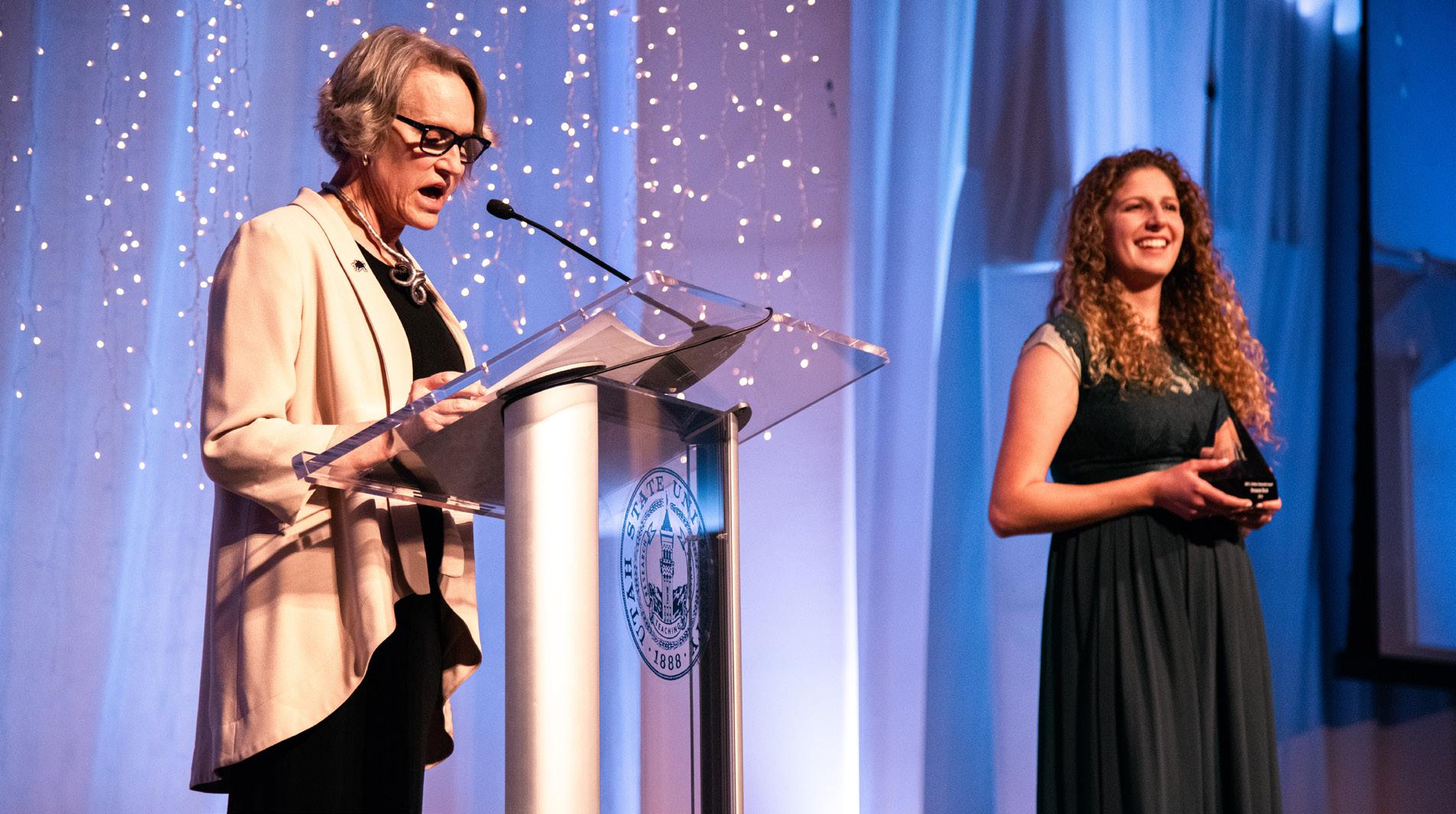
As stated on their website, the Robins Awards are the most coveted of all Utah State University honors, They are named after campus hero and former student body president Bill E. Robins, who tragically died in a plane crash along with his wife Geraldine Robins, is the highest honor a student can receive. They left behind their son Nicholas Robins, who later died at age 8 from leukemia.
There is an award named after each member of the family that is awarded to a single student each year for outstanding academic performance, leadership and dedication to Utah State.
One of the highest honors of the evening is the Bill E. Robins Memorial Award, which was presented to business management major Breanna Beck.
“I think just being among such high-caliber people already is a feat to be named with them, and then the fact then I won, I can’t get higher than that,” Beck said. “It’s a huge honor.”
Beck is a part of a multitude of campus organizations including the Covey Leadership Center, She’s Daring Mighty Things and the Women in Business Association. She also volunteers at the English Language Center and competed in last year’s women’s stock pitch competition, which her team won.
“I’m a people person,” Beck said. “So I think my dedication to USU and the students around me is a huge
how she plans to maintain the level of excellence that comes with winning the Memorial Award.
“I think maintaining what I’ve done and trying to become 1% better at each of those,” Beck said. “Everything I do is to help other people. And so I think becoming more engaged and finding more opportunities because that’s kind of my thing too, is the growth mindset and finding opportunities that maybe I’m not so comfortable with.”
Other award categories included male and female athlete of the year, which went to Darius Brown II, and Kelsey Kaufusi. Another was the Achievement of the Year Award which went to Miss USU 2023 Regan Tracy.
Recognized for her achievements during her time as Miss USU, Tracy used her platform to travel and perform STEM outreach all across Utah.
“I did outreach to over 1,000 people of all different ages and backgrounds, and I got to speak at a lot of different conferences that encourage women to get involved in STEM and just kids in general to join the STEM workforce. I was able to reach a lot of people with that and represent Utah State University in that regard, as Miss USU,” Tracy said.
Tracy passed off the crown to Alexis Lyman just four
The Traditions Committee plans the Robins Awards, starting the October beforehand. Nominations open in November and close in February
Nominators are kept anonymous from those they nominate by the Traditions Committee. After all nominations have been completed a selection committee comprised of two Traditions Committee members, two faculty, and one alumni select the final nominees, who decide if they would like to apply for the award, and the finalists are chosen from there.
Traditions director Ashlynn Smith was in charge of this year’s event and will be a part of it next year as students’ event executive director.
“It’s super exciting,” Smith said. “It’s fun to get awards from all areas of campus because you have your academic ones, and then you have your service ones, your involvement ones, and then even your legacy of Utah State Award, which pulls from a lot of different areas.”
Anyone can be nominated. Students, faculty, and staff can nominate themselves or each other.
This year there were over 200 nominations for awards. Singular students as well as campus organizations were nominated.
Logan campus Aggie Shuttle drivers were recognized this year with the Gerald R. Sheratt Award. This award is specifically for a staff member of the group who shows dedication to a service for students that often goes unnoticed.
“It’s such a range of people because you have our student body president who does a ton for a university and then you have someone who’s like, ‘I want to nominate my roommate just because she always does her dishes,’ You know, it’s completely different but I think it’s cute because if both of them apply, both of them can win an award for different things,” Smith said.
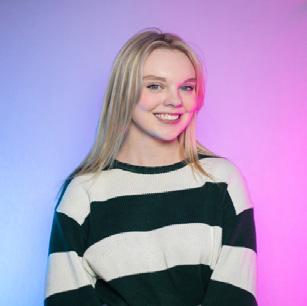
Malory Rau is a sophomore studying social media, public relations and marketing. When not skateboarding with friends, she is usually thrifting, reading or seeing the latest movie.
At Utah State University, multiple construction projects are underway, with a more currently in the design phase, as well as seeking funding.
The reasons for these building projects range from a need for more space for growing colleges to a general need for more housing.
All upcoming building projects are planned to at least be a silver in the LEED rating system. LEED, standing for Leadership in Energy and Environmental Design, is a rating system for how environmentally friendly a construction project is.
“Our department manages all the design requirements for new buildings,” said Jordy Guth, the associate director of planning and sustainability for Facilities Planning, Design and Construction. “And LEED is one of those requirements.”
Further requirements systems to reduce carbon footprints, and protect widllife.
“I have some special requirements as well for bird-friendly designs,” Guth said. “So every new building has to meet the bird-friendly design guidelines put out by the American Bird Conservancy.”
On average, construction projects will take about 12to 18 months,but they often being on the longer side if demolition work is required first.
Perhaps the closest to completion based on estimations by USU’s Facilities Planning, Design and Construction on campus is that of the new Institute of Religion, owned by The Church of Jesus Christ of Latter-day Saints, and which is expected to be finished by this spring.
The Mehdi Heravi Global Teaching and Learning Center, the new home for USU’s Department of World Languages and Cultures, is also close to completion. With a gross square footage of just slightly over 40,600, it is expected to be finished by July of this year, and officials have begun hosting tours of the site. A 30,000 square feet track and expansions dubbed the EVR/ASPIRE is to be added to the existing facility at the Innovation Campus, which is expected to be finished by this May.
An addition on to the west side of the Daryl Chase Fine Arts Center, named the Wanlass Center for Art Education and Research, is planned to be completed by 2025.
Perhaps one of the biggest projects is a redevelopment at the South Campus, close to the business school, library and engineering buildings. This includes an extension of a utility tunnel to that area. This new tunnel will serve one of the new, more noticeable projects, a new South Campus residence hall.
The new residence hall will replace the now demolished Moen, Greaves and Reeder halls. They are expected to be finished by August.
To accompany this new residential hall is the addition of a new parking terrace. The 343-stall terrace will

to help accommodate residents of the new residence hall, as well as replacing a pre-existing surface parking area. This is planned to be finished by the end of spring 2025.
The final new addition to the South Campus developments is the creation of a new center for the business school. The Kem and Carolyn Gardner Learning and Leadership Building will be added close by Huntsman Hall, with a planned completion date by next April.
The last of currently ongoing construction projects are renovations for a new spot for the computer science department, which has only recently begun construction back in March.
Further projects are in the designing and planning stages. These include two new roundabouts and a crosswalk on 1200 East, which is planned in conjecture with both the city of Logan and the Utah Department of Transportation. These are planned to begin work in this spring.
Renovations are planned for the TSC Skyroom as well, with work begining sometime during 2024.
A new lab for the College of Veterinary Medicine is planned to be built at the Innovation Campus as well. The lab is currently in the design process but will begin construction sometime during the spring.
Another construction project currently in the planning stage is a new statewide campus building in Monument Valley. Planned as a collaboration with the local school district there, the academic building will begin construction this spring. It is expected to be finished by 2025.
Paying for all these projects has been thought through.
“There’s actually a pretty big mix of how things get
funded,” Guth said. “Sometimes the state will give us funding.”
Some projects need different sources of funding.
“Housing and parking are considered auxiliaries and so they have to be self funded,” Guth said. “They use bonding, using the revenue they generate to pay off their bonds.”
There is, however, a third option.
“A lot of times, if the college can bring donor funding to the table, it helps kind of leverage getting state funding,” Guth said.
It should be noted student fee funding can theoretically be used, however this is to be voted on by the students themselves. A good example of this is the TSC and the ARC.
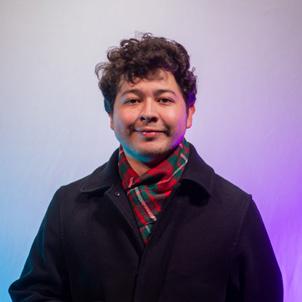
Justin Brewster is a first-year student currently studying international studies and flipping a coin to figure out what he is going to minor in. In his spare time, he enjoys video games, learning about history and political and social sciences and writing.
— justin.g.brewster@usu.edu
On April 11, the northeastern corner of the Quad was crowded with booths and business during the student Start-Up Farmers Market, an event held as part of the Utah State University Entrepreneurship Week. Customers explored booths filled with jewelry, food and clothes, all made and sold by student vendors.
The week was full of events devoted to celebrating and highlighting the Jon M. Huntsman School of Business. According to the Huntsman website, the Center for Entrepreneurship helps students build their own businesses and gain hands-on experience in the field.
The market gave students the opportunity to showcase their startup products and companies on campus in a real market setting.
Sydney Scalley, an entrepreneurship student, showcased her business by selling homemade French macaron.
“The business name I have for it is called Smacs,” Scalley said. “I’ve always liked making macaron, and I realized you can’t find them in many places that are for a pretty reasonable price and that are quality.”
According to Scalley, she started her business through the entrepreneurship minor, where each course involved creating and executing an idea for a business. Scalley has been working on her business since her first year.
“That’s what kind of gave me the confidence to go for it,” Scalley said. “With the courses that I’ve taken, it helped me to learn a lot of fundamentals.”
Alaisa Phithak, a marketing student, had the opportunity to sell at the market for her business, Jellipeace. “I make beaded jewelry for college students,” Phithak said. “I noticed, going to the farmers markets here in Logan, that there wasn’t a big offering of beaded jewelry at an affordable price.”
Phithak said her business is targeted towards college students who may not have the funds to buy jewelry. Jellipeace provides students with a more affordable and local option.
Phithak said she started her business last summer and initially began selling through her personal Instagram. This year’s start-up was the first time Phithak was able to sell her jewelry in a farmers market setting.
“In my head I was like, ‘It’s okay if I don’t sell anything, at least I can get my brand out there and make sure people know that my jewelry was on option if they’re on a budget,’” Phithak said. “I was blown away by the amount of support the other students were showing me by buying my products.”
Phithak had the opportunity to speak with other student entrepreneurs who were selling their products at the market. She said she learned a lot from their insight and from the process of selling goods in-person. “Knowing how to talk to your customers, getting them engaged and excited about your product and informing
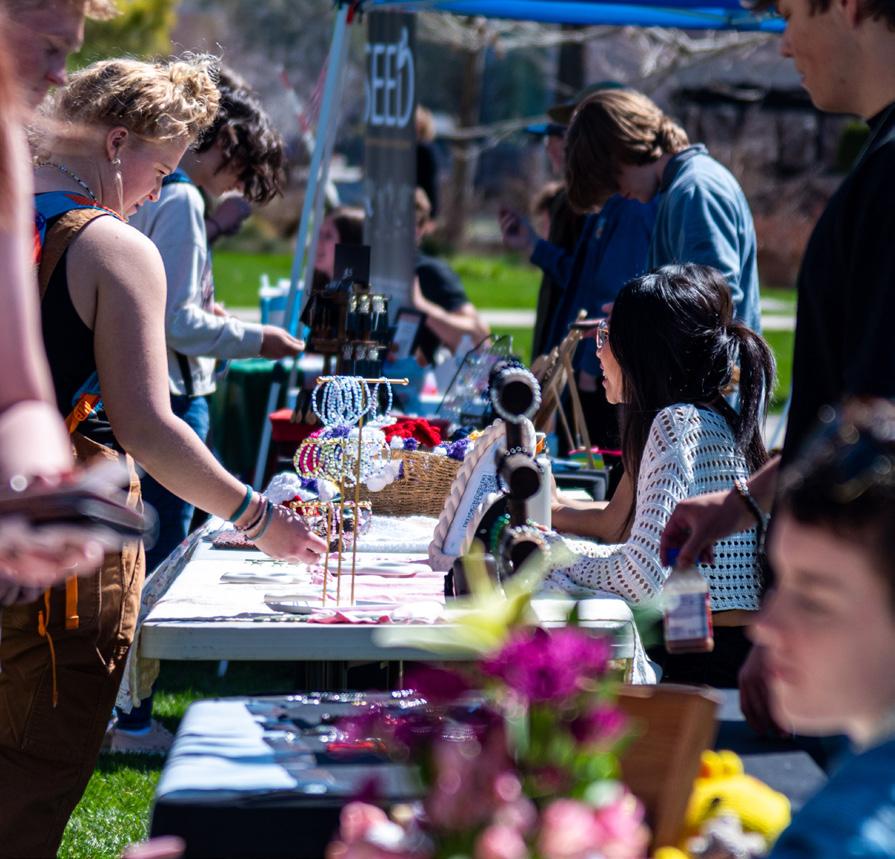

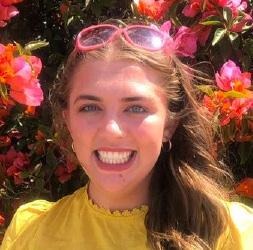
them about why you’re doing it is super important,” Phithak said.
Phithak got involved with the market through the entrepreneurship minor, which she chose to gain a better foundational understanding of what it takes to run a business.
“Something that I’ve always wanted to do with my specific job is to be able to make my own hours and be my own boss,” Phithak said. “That’s a big reason why I decided to minor in entrepreneurship.”
Phithak hopes to continue expanding her business, and plans to start selling her jewelry at other farmers markets in the future.
“If you have a business idea that you think is a great idea, I think you should pursue it,” Phithak said. “It can be really scary, and you might not know what the outcome will be, but you will never know unless you try it.”
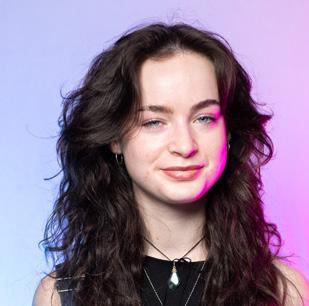

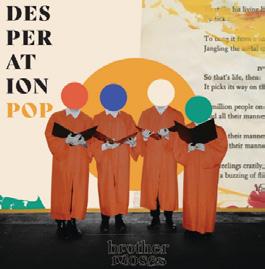

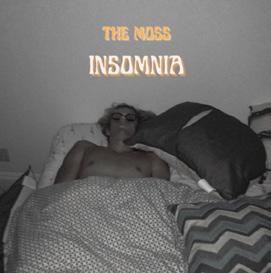




— a02413313@usu.edu

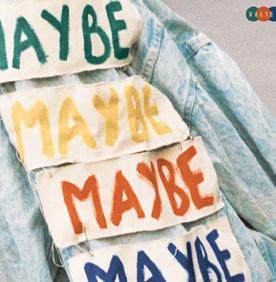



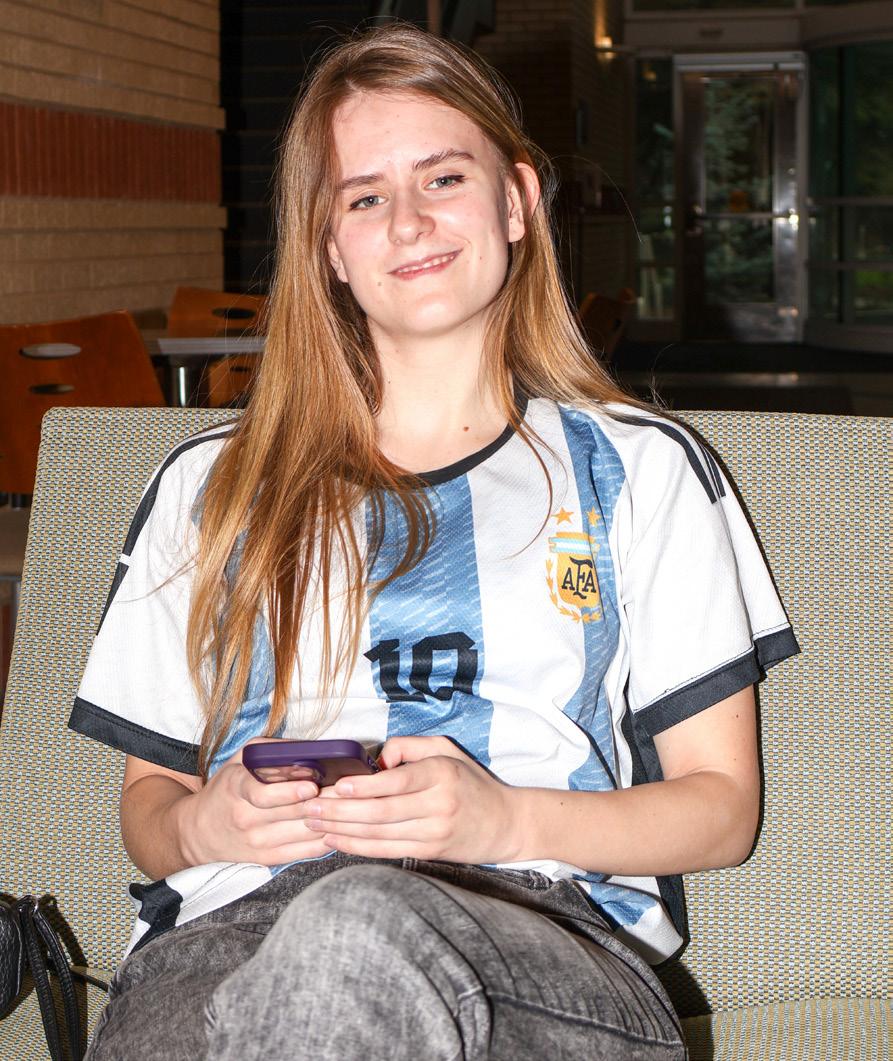

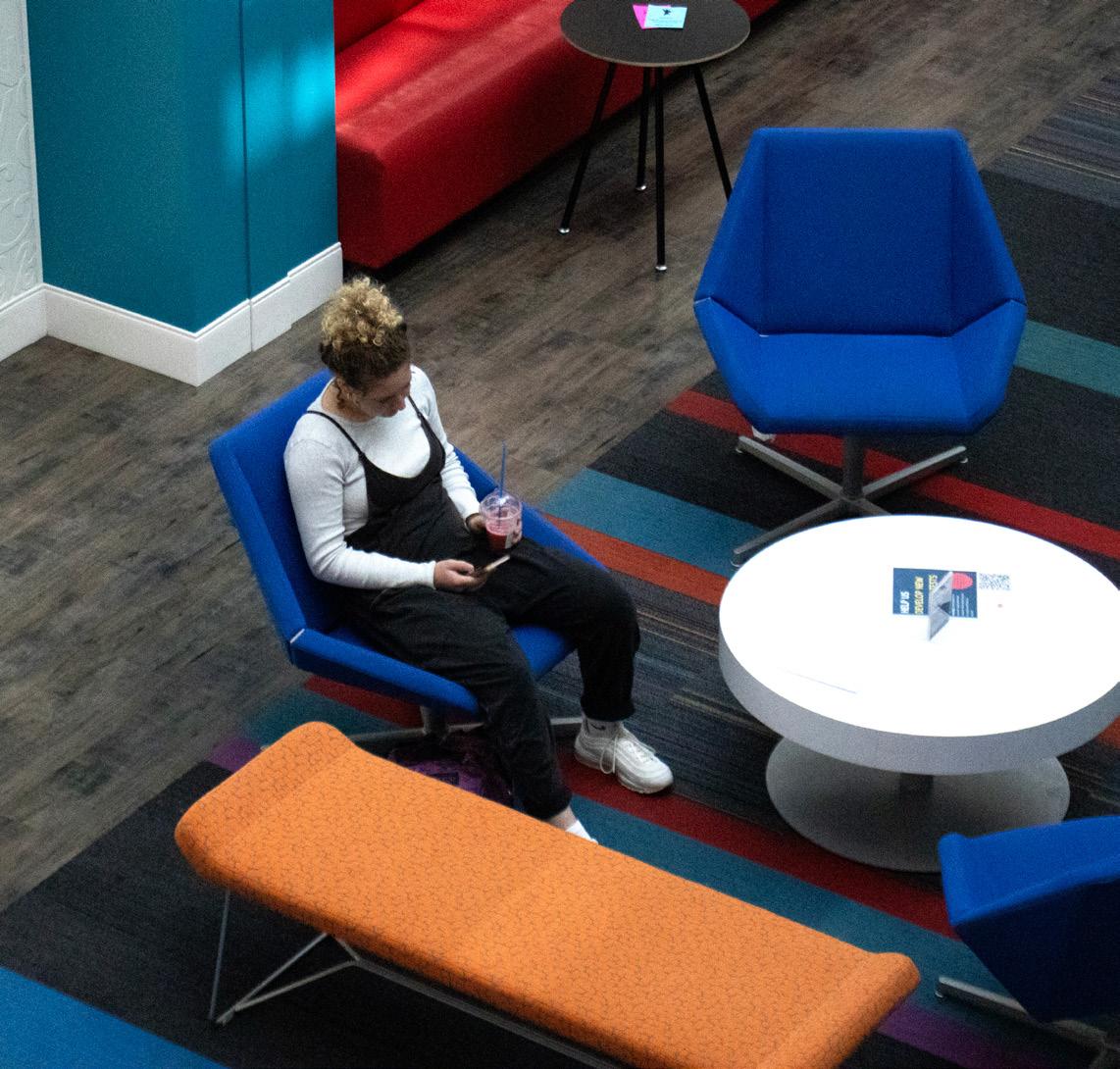

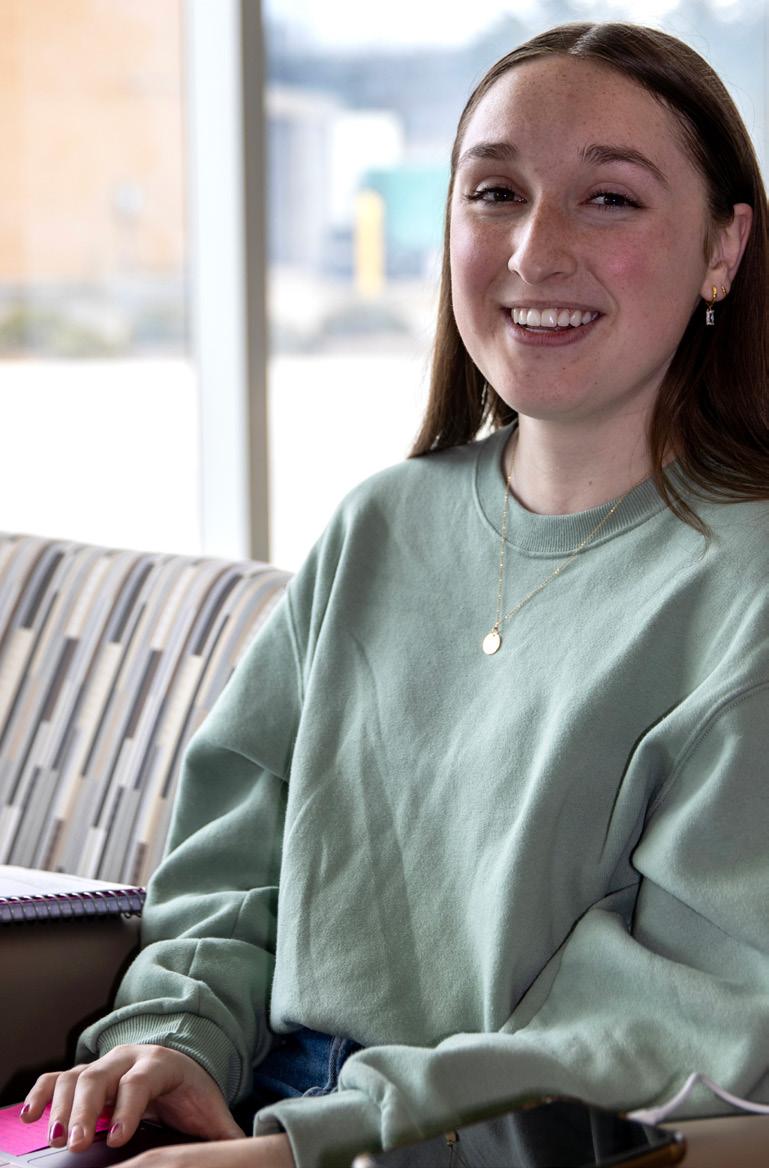
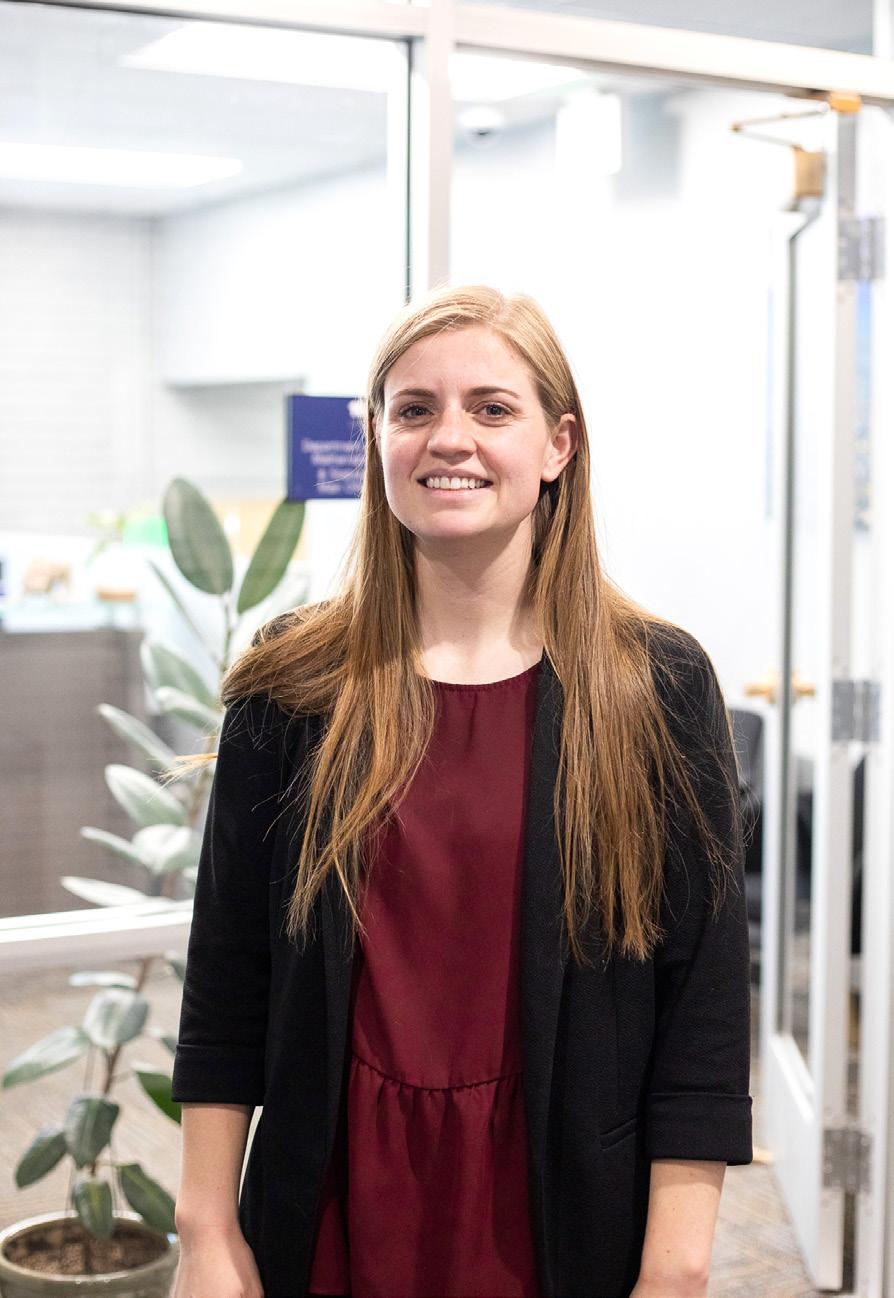


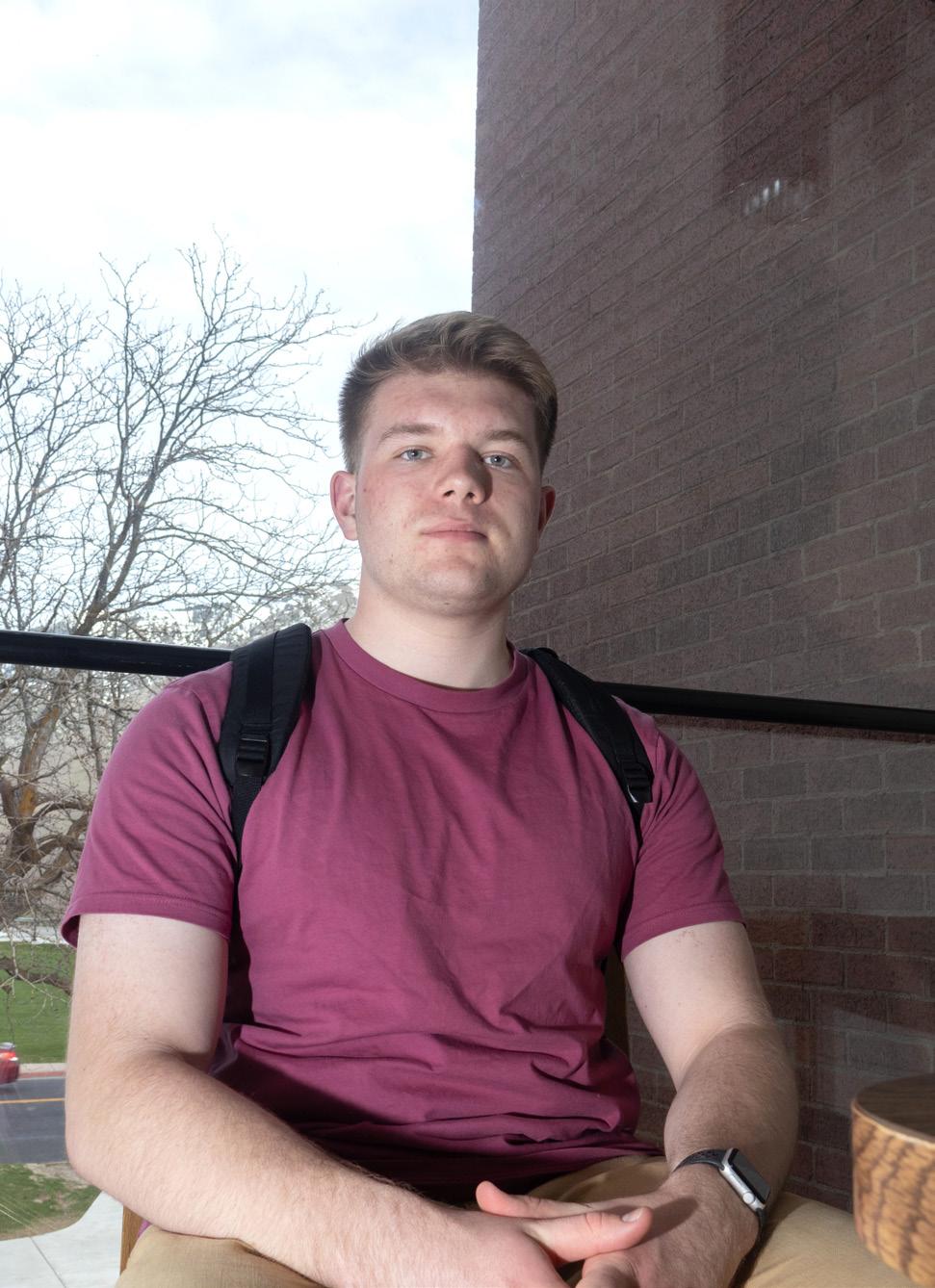


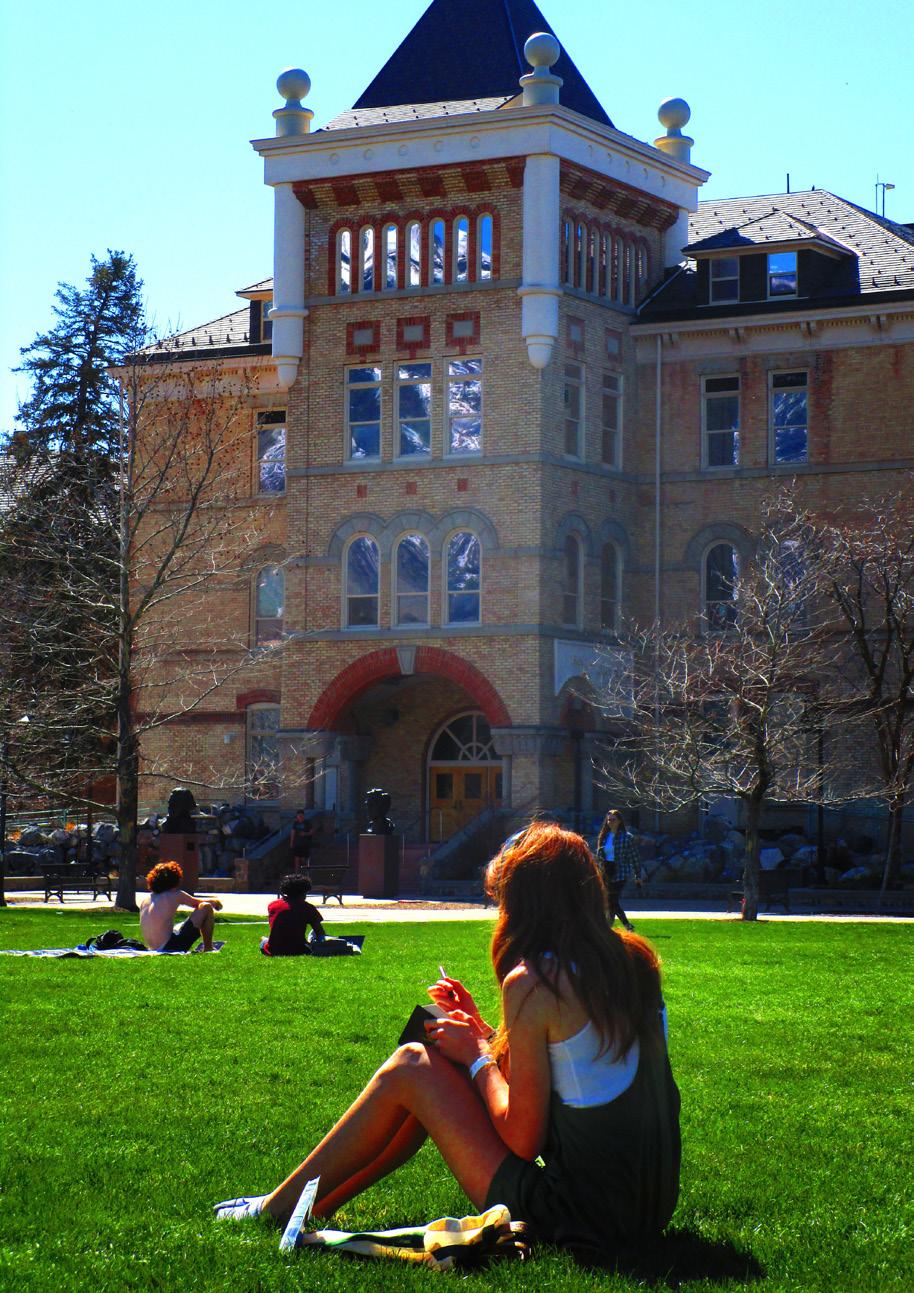



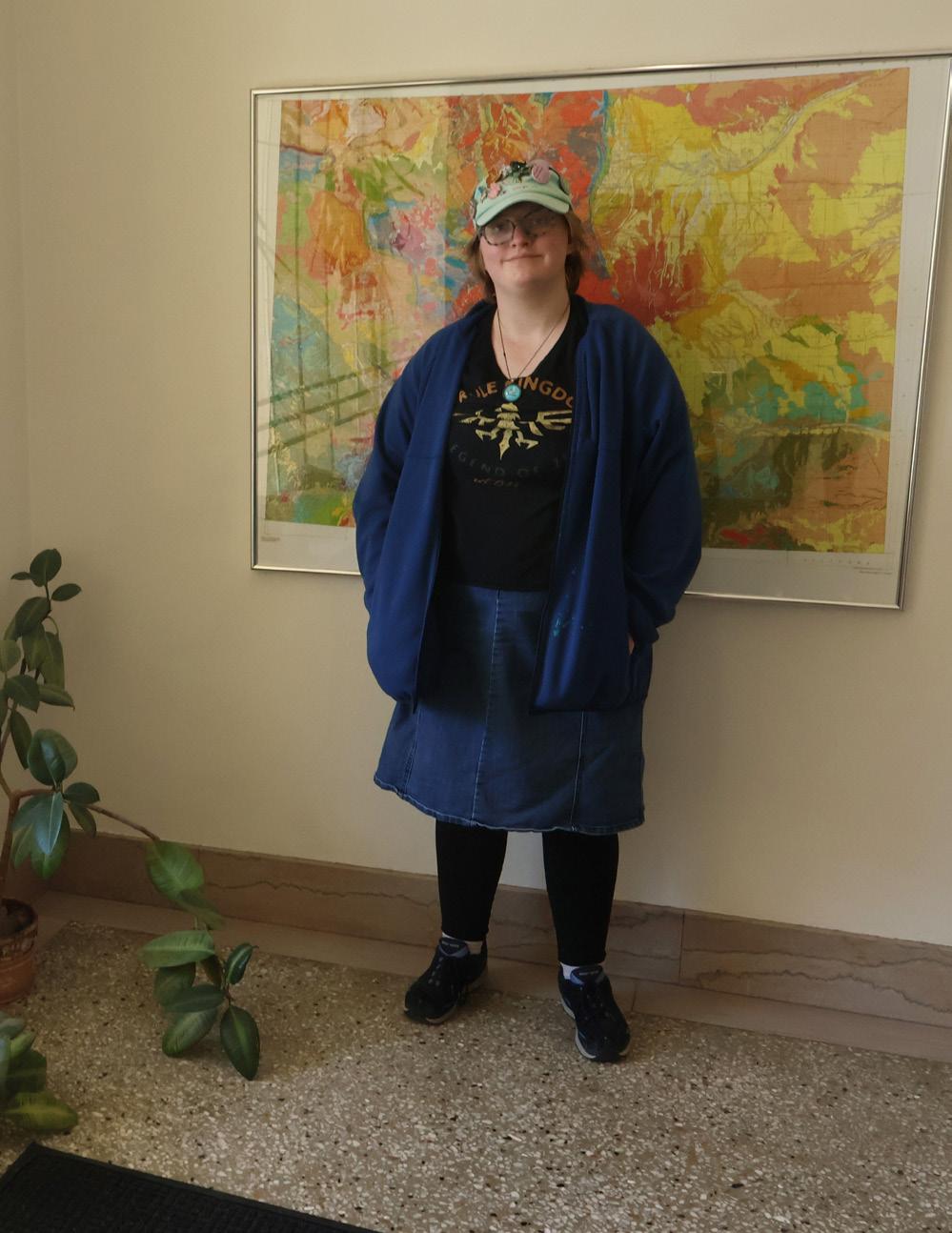

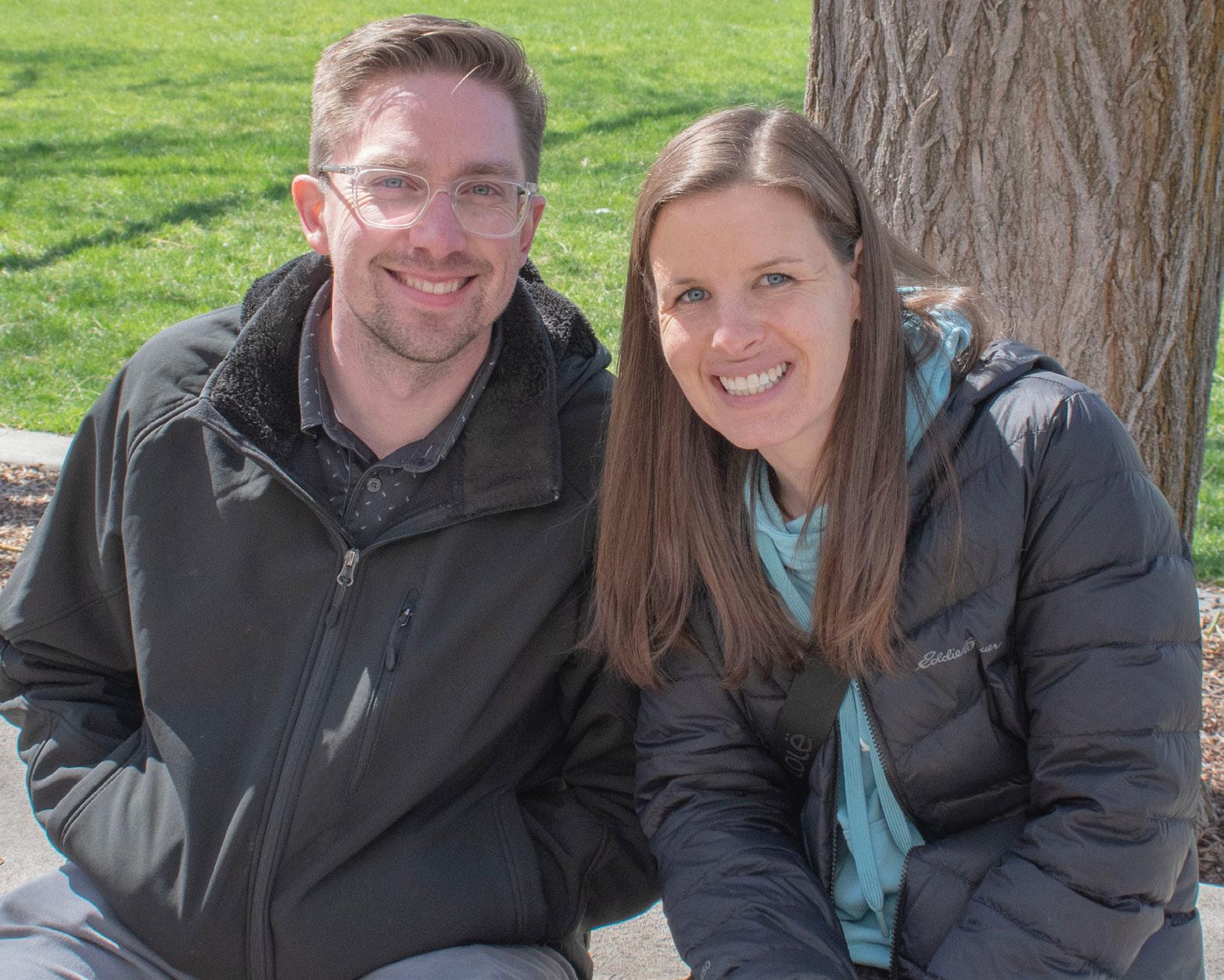
In
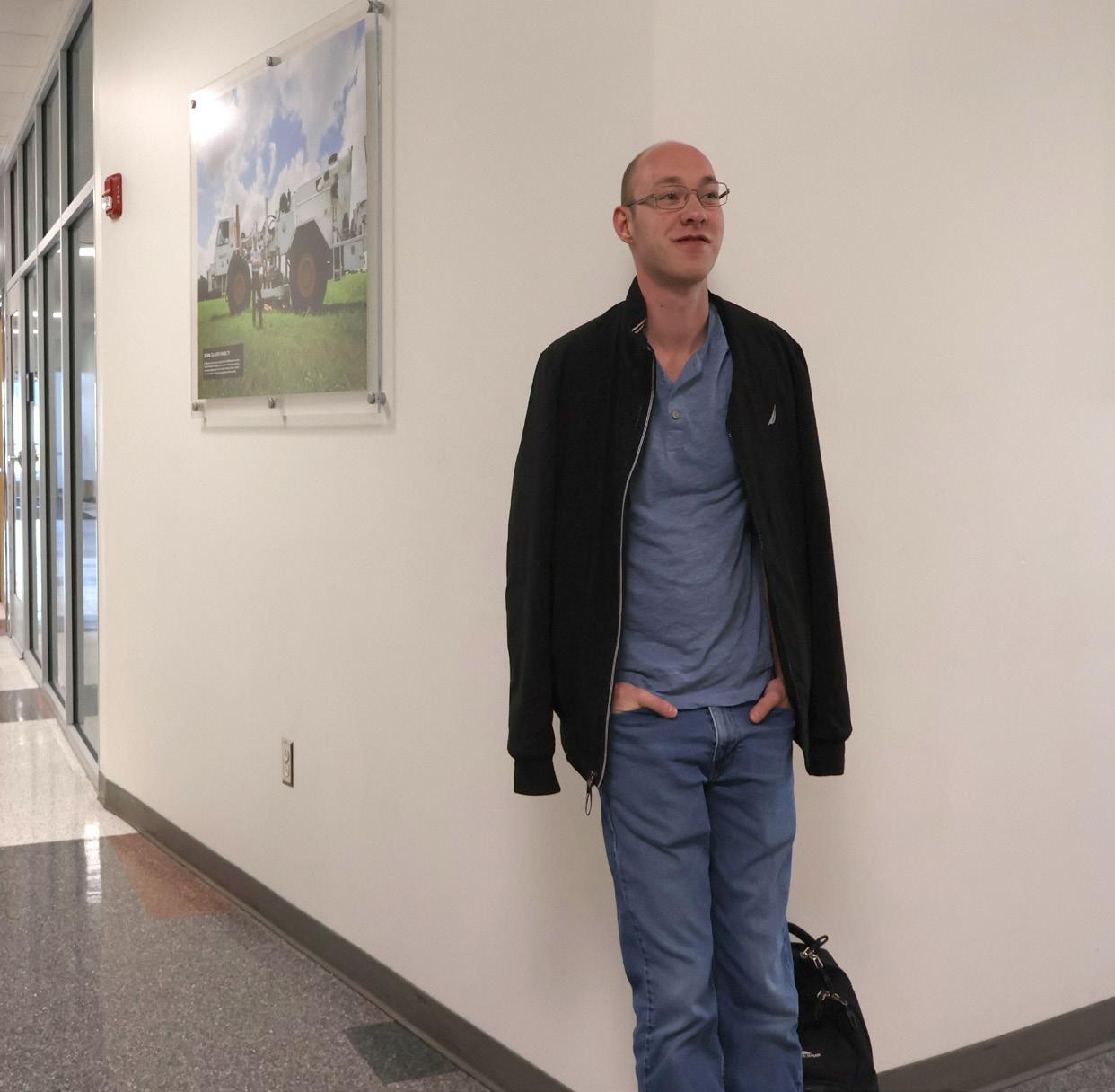


also known



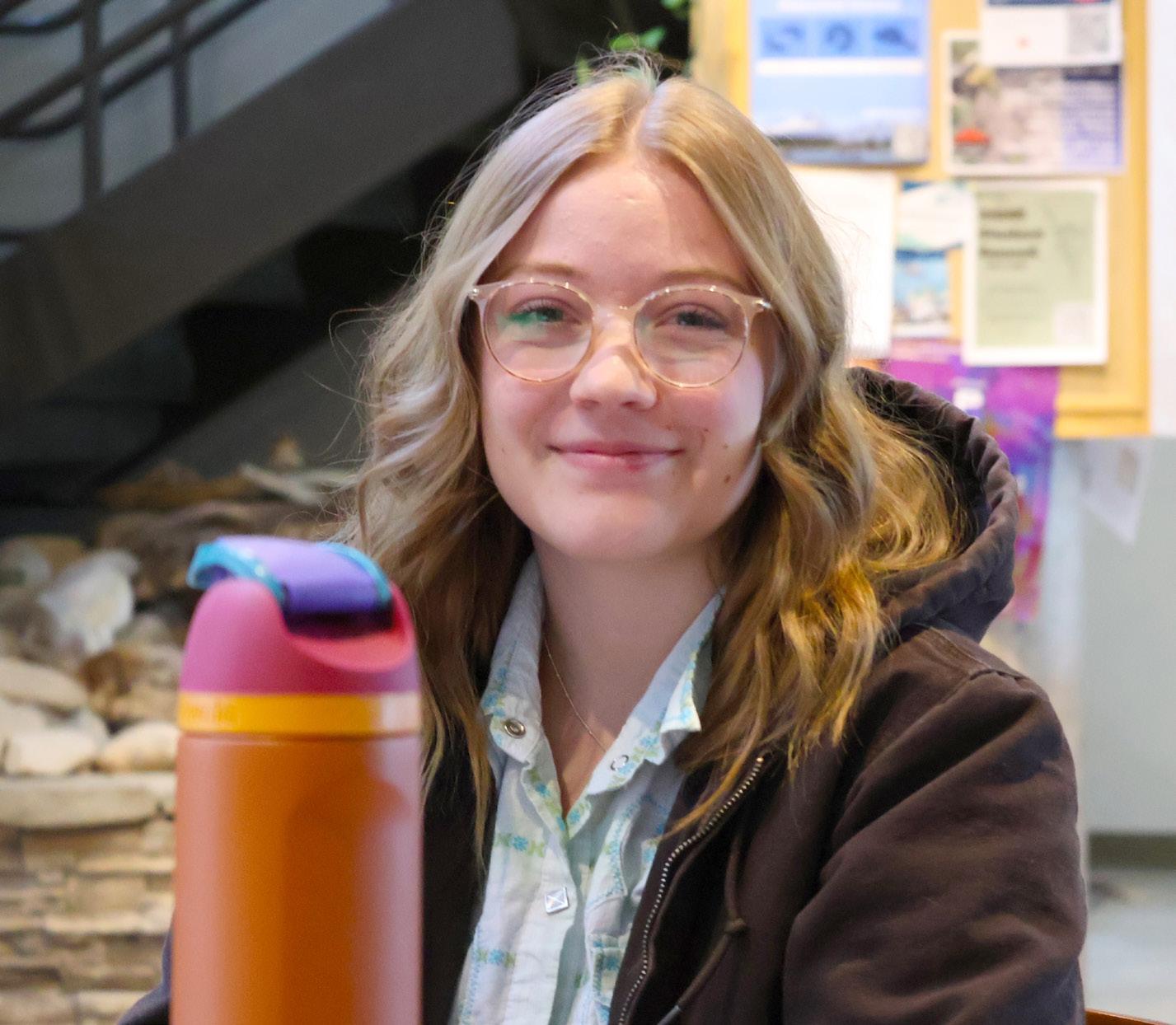

On Feb. 12, a proposed amendment to the USUSA constitution that would require candidates to disclose sources of third-party campaign donations was struck down in an Executive Leadership Board meeting.
The amendment, which proposed to change Article 3 Section 4H of the constitution, required that candidates report the source of any donation over the value of $50. The motion to strike the amendment passed unanimously, and it was struck down the next day in Logan Executive Council as well.
ELB consists of the USUSA President, executive vice president, student advocate vice president and chief of staff. Executive council includes those members, plus the Logan VP, public relations director and the executive directors of diversity and organizations, athletics and campus recreation, and student events. According to the ELB minutes, the amendment was a response to the presence of third-party donors like Turning Point USA, a nonprofit organization that encourages conservative political action on college campuses.
Sarah Pope, the 2023-24 graduate studies senator, was part of the constitutional committee who wrote up the amendment, but not the voting body. Pope said she believes students deserve transparency. “There are organizations that have a vested interest in student politics,” Pope said. “I think it’s important that students know that when they’re voting for a candidate, they’re voting for somebody who is only representing students. And if they’re not, students deserve to know that.”
Article 6 of the election bylaws outlines current expectations regarding expenditure reports, which candidates submit at the conclusion of the campaign window. They must include “a copy of all receipts, a complete list of Campaign Expenditures, Donations, and the Fair Market Value of materials purchased or used in their campaign.”
and whatnot, but if the elections committee missed something, and nobody else submits anything following, then it could get through us.”
In a text message to The Utah Statesman, Clara Alder, the 2022-23 USUSA President, said she didn’t have any evidence of candidates exceeding the $400 spending limit when she was campaigning. However, she said there is nothing in the constitution or bylaws that prevents a candidate from accepting more than the limit and just not using it on their campaign.
Tyson Packer, the 2023-24 student advocate VP, said there is no way to find out if a candidate received a donation and left it out of their report.
“Even if we did, we don’t have the legal means to necessarily punish them,” Packer said. “If a candidate does something, it takes something pretty drastic to get them kicked out of elections — so a lot of times what we’re looking at is minor fines, like $25-50, removal of campaign materials, and those are just very weak things for receiving a ton of money.”
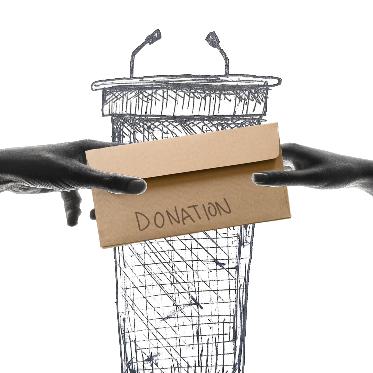
There have been discussions about eliminating expenditure reports entirely because of the lack of legal standing for requiring candidates to submit financial information, Packer said, and USUSA’s inability to enforce the proposed amendment was one of the reasons it got struck down. Pope didn’t feel this was a “valid reason” to not pass the
“None of our election finance bylaws are enforceable,” Pope said. “No one is ever in trouble. No one’s ever been barred from going into a position because they violated the bylaws.”
Abraham Rodriguez, 2023-24 USUSA President, said along with its lack of legal power, the amendment didn’t include enough details about the reporting process — whether donation sources would be listed on the expenditure report, the ballot, the candidate’s profile or somewhere else.
Packer said there were also concerns about the amendment from officers who accepted third-party funding for their own campaigns.
“When we kind of talked about it on ELB, I will admit there is some bias, because Aly Cinq-Mars, exec VP, and Abe Rodriguez, the USUSA President, both received funding from third party sources,” Packer said. “They were like, ‘Well, we got our whole campaigns paid for by third parties.’”
Rodriguez said he did not accept funding from Turning Point. The Statesman reached out to Cinq-Mars, but she declined to comment.
The other main reason for striking the amendment was a concern about it drawing undue political attention to an apolitical election.
“I don’t like USUSA elections to be political. There’s not a lot that we do that could really be construed as political,” Packer said. “I was worried that bringing this amendment in would create a more divisive atmosphere.” Ottley said while topics like DEI and sustainability could be viewed as political, most things USUSA works on are not.
“In the spirit of staying away from politics as much as possible, and just focusing on the students, it seemed like the best choice to not make that a huge focus of elections,” he said.
Brandon Sorensen, the incoming 2024-25 Logan VP, said USUSA should be focused on legislation for Utah State, not national politics.
Carter Ottley, the 2023-24 USUSA PR director, said members of the elections committee are responsible for reviewing the submitted expenditure reports. Although the report includes a section to list donations, he said it’s usually empty.
“It could probably be pretty easy to get around it,” Ottley said. “We try to pay attention to people’s campaigns
Jaxton Winder, the 2023-24 College of Science senator, said although he was in support of the amendment, he was taken by surprise by its final form, which he thought got changed because of concerns raised by the USU Office of Legal Affairs. “The actual text that went to Executive Council was different than the one that I gave my thumbs up to. It apparently got changed pretty last minute,” Winder said. “As disappointed as I am that the actual goal of the amendment has not come to fruition, I can understand why that specific language of it didn’t. It needs to be worked on a lot more. We need to establish a very codified process for reporting these donations and oversight for it too.”
Winder said the language of the amendment could have blurred the lines of the advisory role the Student Involvement and Leadership Center takes over USUSA.
“Politics is something that makes people unique but can also set barriers, and that’s not the type of barriers that we should have working as students in the Student Association, so I think it’s beneficial to have that not as a factor,” Sorensen said. “We were voted in and elected because of what we represent, and I would hate for another third party to bias decisions.”
Similarly, incoming 2024-25 USUSA President Matt Richey said he felt candidate platforms should be the primary focus of elections.
“If I want students to be more aware of campaign finances or candidate platforms, I’m going to choose candidate platforms every time,” Richey said. “This is a different kind of election than regular politics.” Pope said the amendment was not a move to garner political attention.
“Transparency is not political, unless you have something to hide,” she said.
Winder said he thought the officers who didn’t think the amendment was necessary may have been “a bit unaware of how much external money has already been funneled through USUSA” by third-party donors like Turning Point.
Several years ago, Turning Point rolled out an initiative called Campus Victory Project. In a brochure circulated around 2017, Turning Point claimed student government associations had been “controlled by the left for decades” and had appropriated “hundreds of millions of dollars of student fees to intentionally push a coordinated radical progressive agenda.” In response, CVP’s mission was to “commandeer the top office of Student Body President at each of the most recognizable and influential American universities.”
The brochure is directed towards potential donors and recruits. It includes a scalable administration plan, directives for “new leadership education” and a list of “targeted races,” of which Utah State is listed among other schools in the Pac-12 region.
The Statesman reached out to CVP but did not receive a response.
Though CVP was associated with Turning Point in the past, any direct mention of a connection has since been erased. The CVP website does not mention Turning Point, or vice versa; however, the website font and design are nearly identical for both sites, and both organizations operate from the same business complex in Phoenix, Arizona.
Turning Point and CVP — whose titles were frequently used interchangeably by USUSA officers — make donations to student government campaigns and pay for students to attend conferences. At USU, their presence in campaign finances goes back several years.
According to his LinkedIn profile, Porter Casdorph, the 2021-22 student body VP, worked at CVP as a regional recruiter during his USUSA tenure. In a phone call with the Statesman, Casdorph referred to his CVP position as a “resume filler.” He said the job was focused on recruiting students to attend leadership conferences a few times a year.
Rodriguez said CVP is one of many organizations who reach out to student government leaders to invite them to conferences. But attending a leadership conference held by a group like Turning Point as a student is different than attending as an elected officer, he said. “At least on our campus, you are representing about 27,000 students, right, and they’re all going to have different beliefs, and so you want to be mindful of that,” Rodriguez said. “We’re advocating for student interests, we’re advocating for the Aggie community, so we should just stick to that mission.”
During his campaign for president last year, Rodriguez said he was approached by a previous USUSA officer who worked for CVP, but he did not accept money.
“I was approached about it and got to learn more about what this organization does. But, I mean, at the end of the day, I decided to just rely on my family for a lot of that funding,” Rodriguez said.
Donations from family members fall under the thirdparty category, and the amendment language was vague about reporting these versus donations from businesses or nonprofit organizations. Both Rodriguez and Packer cited this lack of clarity as a reason for voting against the amendment.
Pope, who campaigned for president this year, said she was not approached by Turning Point or CVP, nor did
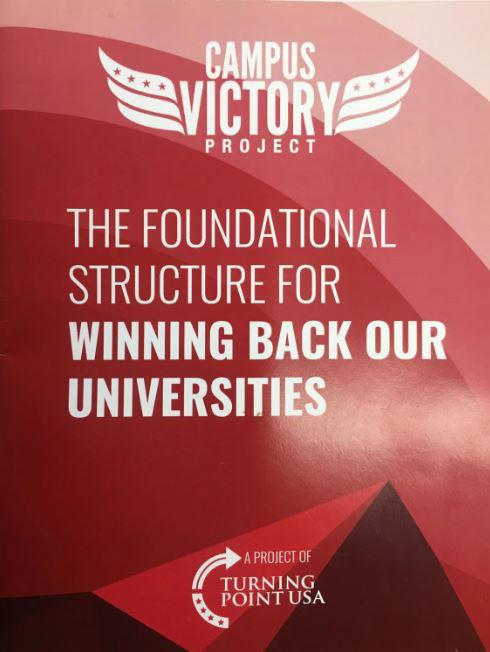
she accept donations from other third-party sources, including the new USU chapter of the Communication Workers of America labor union, which she helped start. “I didn’t ask our union to fund me, and they didn’t offer,” Pope said. “I think if they had offered, I probably would have turned them down.”
As an elected officer, Pope said she wanted to make sure she only had obligations to the students she was representing.
Richey said he received a donation of around $150 from CVP. He heard about the group from 2021-22 USUSA President Lucas Stevens after Richey reached out to ask for tips on running a presidential campaign. Although he was initially hesitant about the idea of “free money,” as well as CVP’s connection to Turning Point, specifically because of Richey’s own support of DEI programs, he said conversations with Stevens helped change his mind.
“The people I was working with directly, they want the best for Utah State. They’re Utah State alum; they’re still committed to seeing the best for Utah State and so that helped me trust them,” Richey said. “They’ve never asked for anything in return.”
with campus issues compared to the people who are actually on campus.”
In an email to the Statesman, Jonathan Mousley, the 2021-22 science senator, said he was never approached by any third-party group, political or not, during his campaign. He was, however, aware of other candidates and officers who were “involved in some capacity with such organizations and had attended a conference at least one occasion.”
Mousley said he didn’t think issues that student governments work on, including student outreach and better advertising of resources, seemed to be the priority of organizations like Turning Point.
“They seem to be more about sparking culture war than improving a campus for all,” Mousley wrote.
CVP also has a presence at other Utah universities. Rodriguez said third-party funding, specifically in relation to CVP, has been “a hot topic” in the Utah Student Association, a coalition of student body presidents from universities around the state.
According to a map on their website, Turning Point has student chapters at several universities in Utah, including Weber State, the U, Salt Lake Community College, Utah Valley University, and Brigham Young University. There is no chapter registered at USU.
The USUSA club directory lists a Turning Point USA club, but the link is no longer active.
According to an article published last year in the UVU Review, Casdorph signed off on a donation for “personal campaign expenditures” in 2022 for Lexi Soto, who was running for student body president. UVU does not require candidates to disclose donation amounts, nor do they enforce spending caps.
Both Richey and Packer said the existence of USUSA’s spending caps — $400 for positions on ELB, Logan Executive Council and Statewide Executive Council and $200 for college senators — made them less concerned about the impact of third-party donations.
“Where those are in place, I think that it kind of lessens the significance of where the money is coming from because there are so many sources to pull from,” Richey said. “If it wasn’t Campus Victory Project, it would have been my family.”
Here’s your money back. Go shove it.
— Matt Richey
The Statesman reached out to Stevens but did not receive a response in time for publication.
Alder said she was offered donations from CVP, but she never accepted.
“I was approached before, during, and after my campaign. I never was drawn to it. I felt that I didn’t need extra support. Everyone I needed was at USU,” Alder wrote. “These big organizations are not as in-touch
Ottley said during his 2022 campaign for CHaSS senator, he was never approached by CVP, which he thought was probably because of the small size of the position. Packer said he was not interested in accepting thirdparty donations because of his own political and personal independence.
“I think the higher the amount of money that you’re given, the more Turning Point is expecting a return on their investment,” Packer said. “Whether they reach out or whether they require things of you, I don’t like being indebted to someone for something.”
Of the six former and current USUSA officers interviewed for this story, not one said they noticed undue political influence from officers who received funding from third-party political sources or were otherwise involved with them.
“In my experience, everyone I have worked with in USUSA were good people, with Utah State’s best interest in mind,” Alder wrote.
“As far as I know, looking back at past legislation, I’ve never seen anything that could be construed as being influenced by a third-party source,” Packer said.
“Some of our student leaders have participated in some of their leadership conferences and what not,” Rodriguez said, “but, in the end, none of them really ever brought anything politicizing to the room. There was no room for an agenda.”
Rodriguez said officers follow charters to guide their work during their time in office.
“Every single one of our charters outlines our duties, our responsibilities,” Rodriguez said. “That is there to keep every single officer in check so that the work that they’re doing is only centered on USU students, USU campus life.”
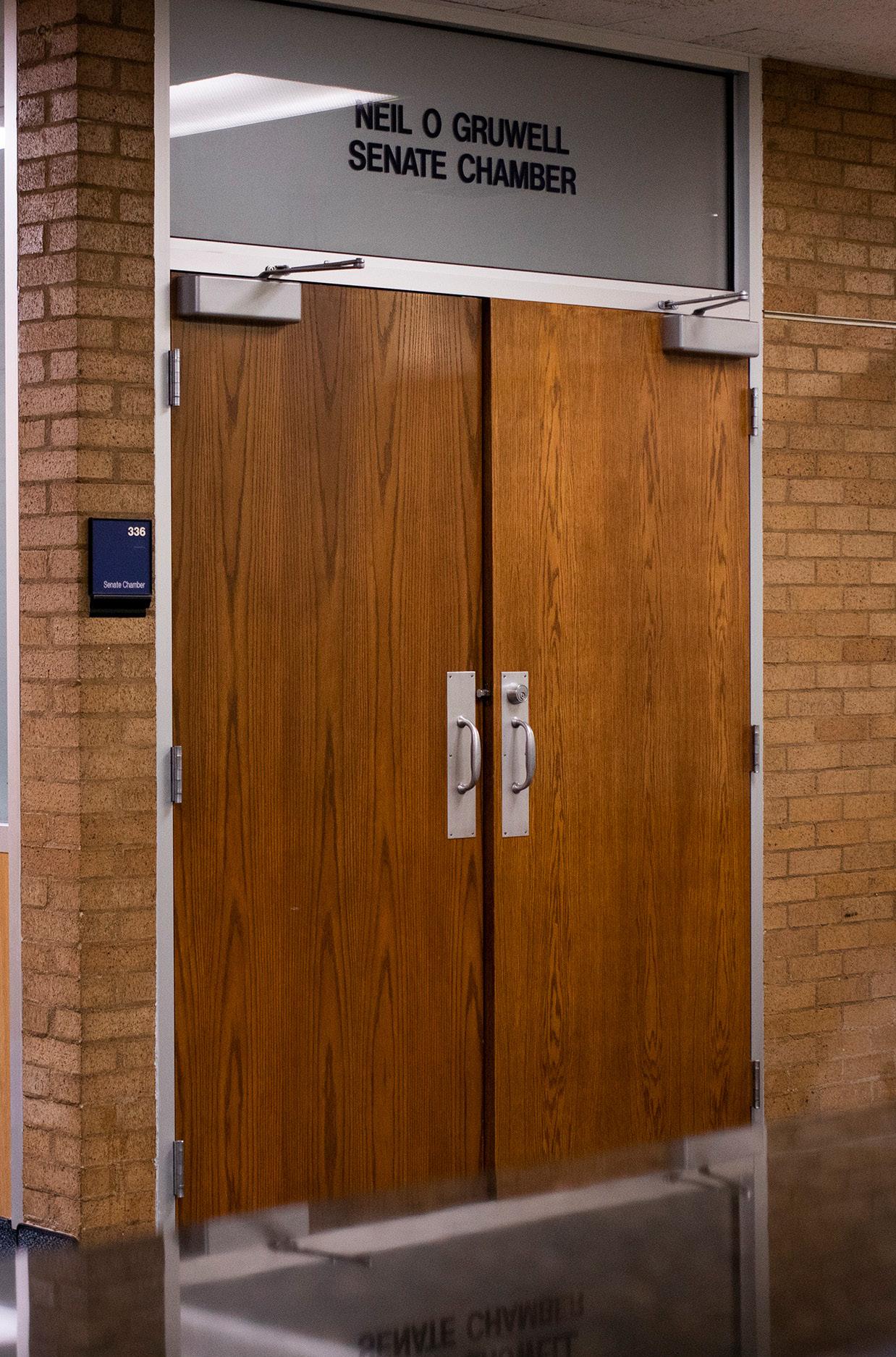
Winder said he didn’t see any particular influence from third-party donations, and that he doesn’t believe fellow officers who accepted money did so with malicious intent.
Winder did mention that during fall semester, there was a brief discussion in USUSA about a resolution to support Israel after the Oct. 7 Hamas attack, but it was “pretty quickly deemed not exactly appropriate” to make statements for the student body as a whole about “a very complicated topic.”
“I know that a lot of these organizations, particularly Campus Victory Project, has kind of encouraged some of their student leaders to be very pro-Israel in the wake of all of this,” Winder said. “If that were to have come to fruition, I would have been concerned. But it didn’t.” Incoming officers also did not see outside influence as a concern.
“From my experience with officers that I’ve known that have worked with Turning Point or accepted that donation, I’ve noticed no change in what their motives were or what they were trying to pass or any type of change in who they were as a person,” Sorensen said. Sydney Lyman, the incoming 2024-25 student advocate VP, said in the past year, there were people who came “out of the woodworks” to support initiatives that could be seen as counter to what Turning Point promotes. She specifically referenced the “widespread support” of the Voices of Aggies initiative, put together by the Government Relations Council to support DEI in the face of oppositional state legislation.
“I think that if, you know, third-party money had really infiltrated the student government, that it would be significantly more divisive than it was,” Lyman said. Richey said if CVP were to approach him about passing legislation in exchange for their donation to his campaign, he would refuse.
“I do not believe that would ever happen. But if it did, I would say, ‘Here’s your money back. Go shove it,’” Richey said. “I know why I’m here and I know what I’m about.”
Secrecy and transparency
Accepting a donation from a third-party source, political or otherwise, is not prohibited by anything in the USUSA constitution or the election bylaws. Candidates who have done so have not violated any rules, but secrecy still surrounds the topic.
After being asked the name of the USUSA officer who connected him with CVP, Casdorph accused the Statesman of going on a “ghost hunt,” and did not respond to further questions.
“It’s a very touchy subject,” Winder said. “It’s one that I think a lot of people don’t exactly want to admit is an issue, so it’s almost easier to pretend that the problem doesn’t exist than to discuss it and become aware of the fact that it needs to be addressed.”
Winder said he felt comfortable speaking on the topic because he has built a reputation of speaking up in USUSA circles.
“We should have transparency and allow the student body to hold us accountable if any of that money does start to influence our decision making,” Winder said. Richey, who was open about the donation he received from CVP, also said he understood the hesitancy.
“Money is dirty. Politics are dirty — even though it’s not at a campus level, it is very easy to feel that way,” Richey
said. “I can definitely empathize with other candidates being nervous to talk about it because of that.”
“If you’re worried about transparency, what does that say about your sources where you’re getting money from?” Pope said. “And if you’re not getting money from third party sources, then why are you so worried about it?”
Students are often in financially precarious positions. Spending several hundred dollars on a campaign isn’t a small decision, so donations from third-party sources are enticing.
Lyman said she had to save up to prepare for her campaign, and during that time, she heard “through the involvement grapevine” that Turning Point was a funding option, though she was never approached by them.
“I’m not even sure that people that would take money from those organizations believe the things that that organization says. They just are trying to run a campaign,” Lyman said. “There’s limited financial resources available to them, so they’re trying to utilize what they have.”
Candidates who said they did not accept third-party donations, including Sorensen, Lyman and Packer, said investing their own money into their campaigns increased their commitment.
“You put in your hard time and your hard money,” Sorensen said, “Not to say that others don’t appreciate as much, but it’s just — there’s a lot more on the line for you.”
Regardless of their effect on commitment, cash donations can give candidates a leg-up in visibility. “It does have an impact — spending money directly translates to cards handed out, A-frame that people are seeing,” Packer said.
Some candidates do campaign successfully without spending a lot of their own money — including Winder, who won his academic senate seat last year without spending a dime.
However, Winder acknowledged that his campaign, which only involved the students in the College of Science, was less “contentious” than a university-wide campaign might be, and that he was privileged to have made many personal connections.

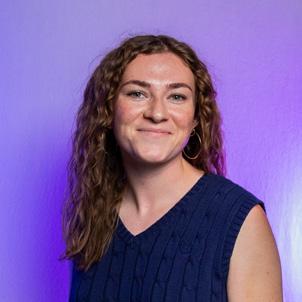
Maren Archibald is about to graduate with a degree in technical communication and rhetoric. She’s pretty good at Skee-Ball, which unfortunately doesn’t offer many career opportunities.
The Utah State University Christensen Office of Social Action and Sustainability held a series of events for Earth Week, where students could join in celebrating the planet.
Starting on April 8, COSAS kicked off the week with an eco hunt and clothing swap. Events ran until April 22, including a Bik to Breakfast event, an art exhibition and award ceremony and a community garden service project.
Ella Leonelli, the COSAS student engagement lead, was in charge of planning Earth Week this year. She is a junior in the environmental engineering program. “A lot of the events are crossover events this year,” Leonelli said. “I love encouraging people from diverse backgrounds to attend events. It’s not about education; it’s about creating experiences around sustainability, so that’s what I am trying to do.”
These crossover events with other departments, such as the art and engineering programs, were to include other aspects of the school to further its mission.
“There’s little ways you can be sustainable in every facility and every facet — there’s so many ways to practice sustainability that we just overlook,” Leonelli said. “You don’t have to be perfect. It’s just making little changes towards the right cause, and I think that having crossover events allows for that experience along with education.”
Mercy Smith, a sophomore studying management and restoration of aquatic ecosystems, worked alongside Leonelli to put on the events. Smith is on the Earth Week council and helped run the birdhouse-making activity.
“We made birdhouses out of recycled stuff from the Idea Factory, which is the College of Engineering maker space area,” Smith said. “The idea was to create an event that’s a crossover between sustainability and engineering. We got to build things using sustainable materials, and I think getting the College of Engineering involved with sustainability is really important.”
COSAS’s commitment to get everyone involved expands past other educational programs into other groups around USU.
“On the 12th, we have Creation Care,” Leonelli said. “That is with a religious group on campus. They asked if they could do an event about stewardship and how the Bible talks about taking care of the earth.”
The events had a variety of vegan food options, and COSAS wants to push for sustainability in every aspect of its activities.
“Most of the food that we served was actually donated to us by the community, which is cool, and we’re very grateful that we have such a supporting community for events like these to celebrate Earth Week,” Leonelli said. “We support having at least one meatless day a week here.”
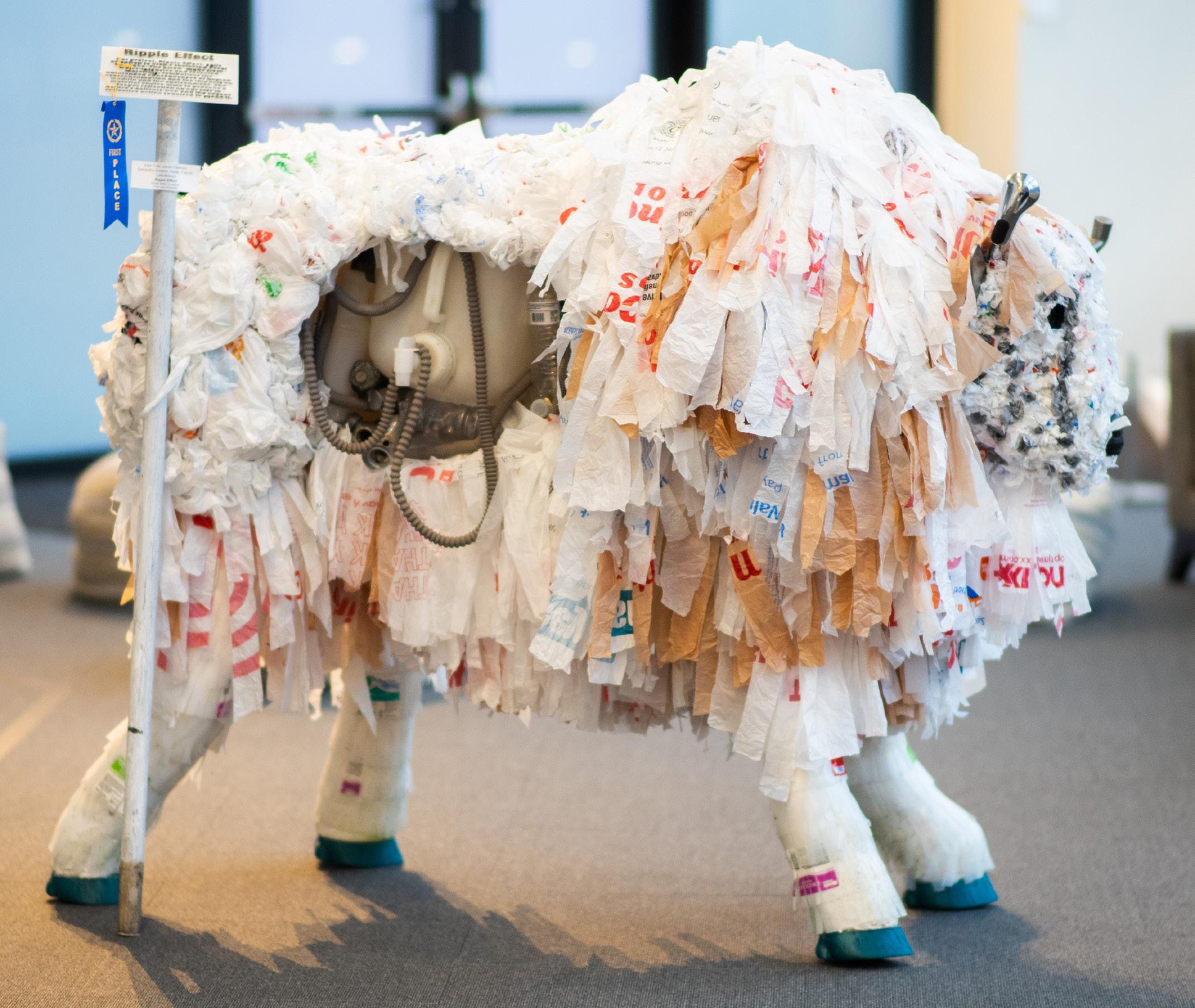
On April 15, the Nora Eccles Harrison Museum of Art hosted an Impact Art Exhibition and Annual Sustainability awards ceremony. The exhibition featured art students submitted that demonstrated sustainability. This year’s first-place winners were Elsa Cole, Kaden Francis, Samantha Greene, Jacob Clawson and Lele Bonizzi for their sculpture representing plastic use titled, “Ripple Effect.”
Karis Pace works for NEHMA and said the museum was happy to have the Earth Week art on display.
“The impressionism was sort of founded on the basis of capturing the little flighting moments in nature,” Pace said. “That in and of itself is important because nothing is ever the same in nature. One of my professors always said that we exist in a series of nows, so whatever is in the past is just an abstraction. It’s important to have visual records, especially artistic visual records of what the world and nature looked like. It reminds everybody that the world has existed before, and it’s up to us to keep it somewhat decent.”
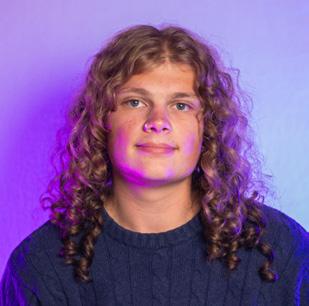
— a02401436@usu.edu
The Bringing War Home Project memorializes the wartime stories of civilians and participants alike — united under one shared narrative. Through workshops, symposiums and traveling exhibits, those whose lives were in some way affected by war have a chance to share their account of history.
The roadshow aspect of the project featured collected artifacts from veterans and families at the Dan Gyllenskog Veterans Resource Center on April 13. The roadshow travels across Utah, from Logan to Price. Molly Cannon is the executive director for the Museum of Anthropology and heads the roadshow. “We were interested in exploring the material culture that surrounds war,” Cannon said. “Those types of objects that people hold onto — family or personal objects — we were interested in documenting this type of history through these different roadshow events.”
The project was made possible after receiving funding from the National Endowment of the Humanities in 2021, allowing for archivists and students to record personal accounts of wartime.
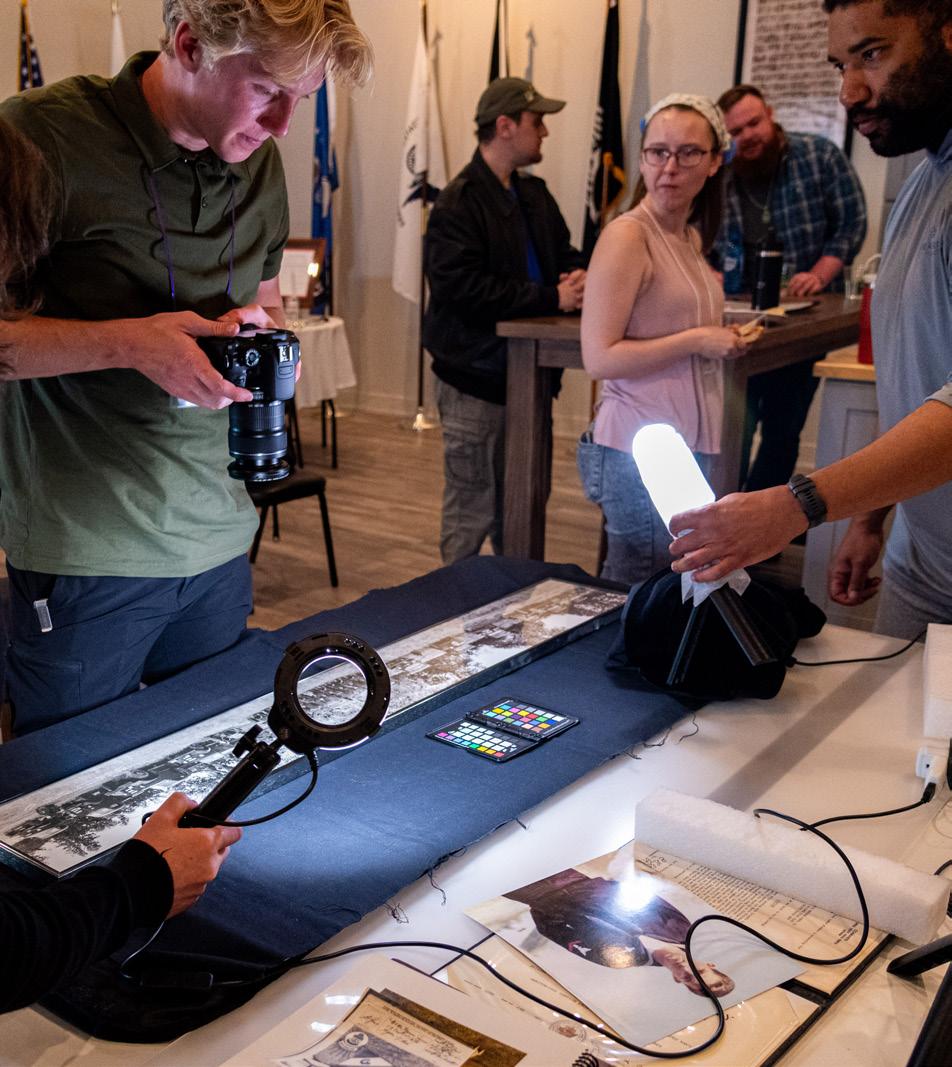
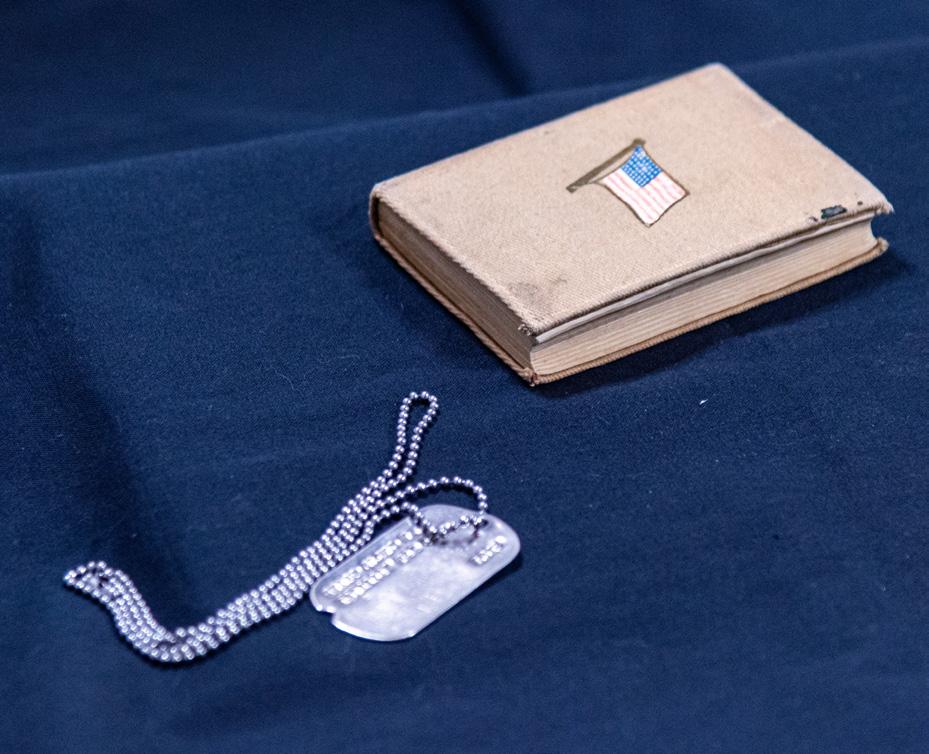
students with the outreach and collecting of artifacts and stories for the roadshows. Cannon teaches the class alongside Susan Grayzel.
“We co-teach it from both an anthropological and a historian perspective,” Cannon said. “Our students are putting on this roadshow event.”
According to Cannon, students of the class have made the past 12 roadshow events possible through their involvement.
“The grant funds both graduate and undergraduate students to do this work,” Cannon said. “They do all the documentation. They’re collecting oral history accounts, interviewing participants, photographing and collecting information about the objects. They’ve also been building the archive.”
Danzen Bingham is a fourth-year student studying history and a student in the Objects of War class. Bingham mostly takes care of oral histories.
“During the project, when people bring in their object and they want to tell a story about the object, they come to me and I record that conversation,” Bingham said. “I ask them questions about the object, where they got it from and what war it’s associated with.”
For students interested in history and documentation, the class grants an opportunity to hear personal, historical accounts straight from the source in ways not found in a textbook.
“I want to be a history professor someday,” Bingham said. “I was interested in this project because I feel you’re doing real history work. You’re actually documenting objects, talking with people and writing down history.”
an who brought it in was the daughter of the veteran.
Through this object and in trying to learn about her family, she found she had a half-brother in Vietnam she never knew about. Since then, she’s been able to connect with her brother.”
The featured stories in the roadshow are anecdotal and often emotional, taking visitors right alongside the participant into the world they’ve lived.
“There’s been quite a few stories that are either really touching or funny,” Goodsell said. “There was a man who spoke about a dog that will hang around their basecamp, who he gave peanut M&M’s. The dog never left his side, and he choked up crying because he had to leave the dog there.”
Goodsell values the personal bond formed between students and the participants in sharing their stories.
“They will just talk and talk, and I really like letting them be heard,” Goodsell said. “Sometimes you can see it on their face that they haven’t told this story to anyone. I really liked the personal connection of being the person they can just let it all out to.”
Another goal of the project is curating an archive of the different stories told by the participants. Students collect information and transcribe it into a digital database, ensuring these lived experiences aren’t lost to time. USU Digital Initiatives will host a fully accessible, public archive online.
“People will be able to see photographs of the objects, read the short description and acquire transcripts and audio recordings of the oral history accounts,” Cannon said. “We’ve also worked with Utah Public Radio to turn these stories into short radio segments.”
The first roadshow was held at the USU Logan campus in April 2022. Ever since the project has been traveling north to south.

“The program’s mission is to connect conversations about wartime experiences,” Cannon said. “A lot of the time, it’s done through literature. In our case, we were hoping people could share these stories through their material objects.”
The Objects of War class at Utah State University tasks
Tessa Goodsell is a fourth-year student in the class studying general anthropology. Goodsell helps with interview transcription and taking interviews.
In working on the project, Goodsell heard many different stories, and a few stuck out to her.
“There is this silk dress that a veteran from Vietnam brought home for his wife,” Goodsell said. “The wom-
— a02388032@usu.edu
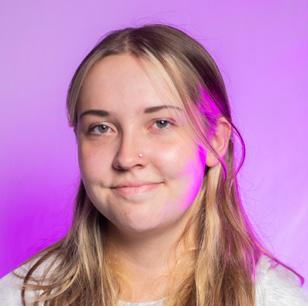
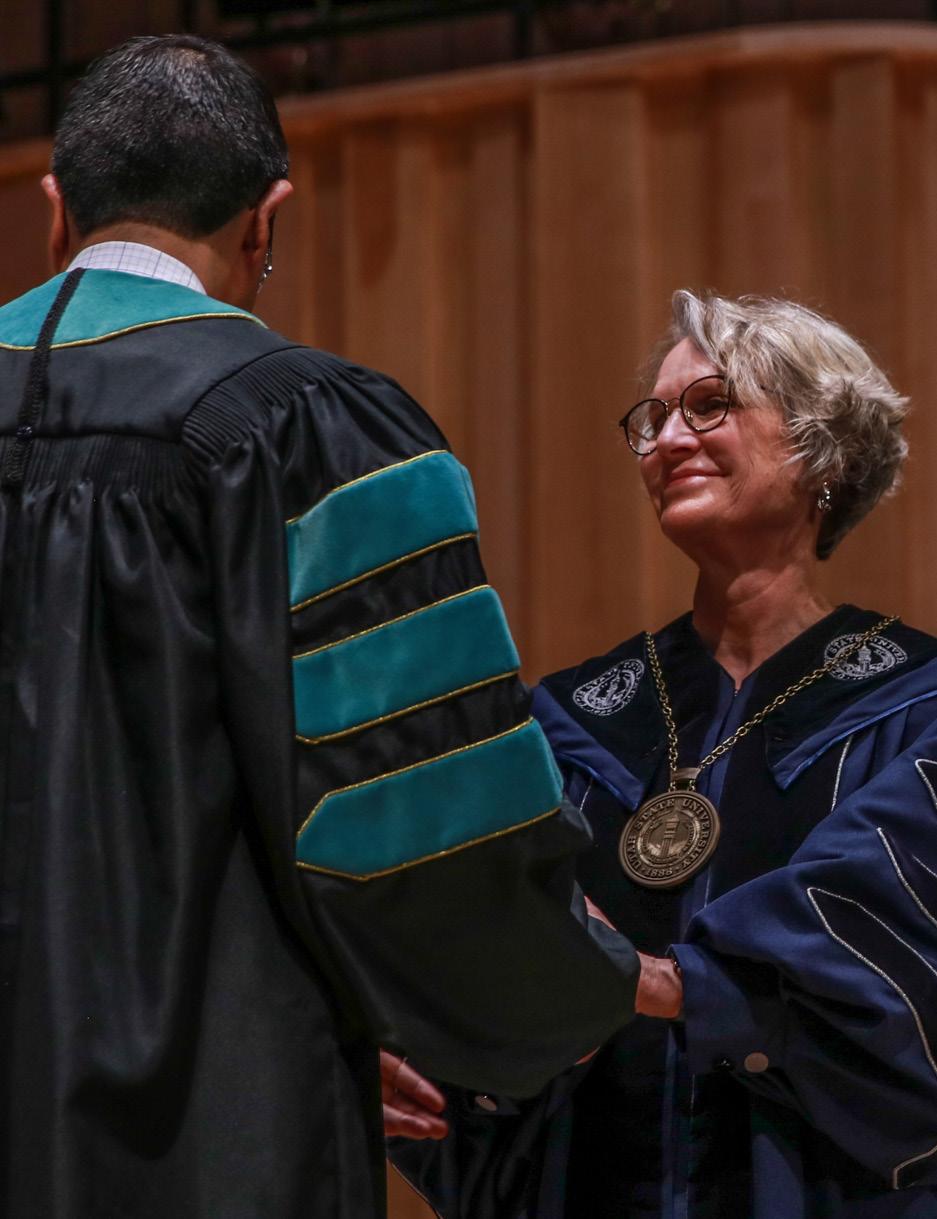 By Ashley Dorius LIFESTYLES REPORTER
By Ashley Dorius LIFESTYLES REPORTER
On April 12, Utah State University hosted an investiture for university President Elizabeth R. Cantwell. Held in the Newel & Jean Daines Concert Hall, the ceremony was broadcast over AggieCast and viewed from campuses across the state.
The event began with a formal procession led by the USU Scotsman Pipe & Drum Corps. During this time, faculty, leaders, state officials and speakers proceeded through the auditorium wearing their doctoral regalia.
Laurens H. Smith, USU’s provost and chief academic officer, was the master of ceremonies.
“It is with great pleasure and gratitude that I send a warm welcome to the investiture,” Smith said. “Our esteemed guests are USU students, faculty, staff, alumni and members of our community gathered here today.”
Grace Olsen, a junior studying vocal performance, sang the National Anthem. Paul V. Johnson, a General Authority Seventy of The Church of Jesus Christ of Latter-day Saints and member of the Utah Board of Education, offered the opening invocation.
Jacey Skinner addressed the group as chair of the Utah State Board of Trustees.
“We are thrilled to have each of you here with us today as we celebrate the opening of the next chapter of Utah State history,” Skinner said.
Skinner said being an Aggie was about looking for solu-
tions to problems and improving the world.
“We take care of those around us, and we make our communities, our state, our nation and the world a better place,” Skinner said. “No matter what physical form an Aggie might take as a mascot, what an Aggie is, is someone who meets the moment.”
Gov. Spencer J. Cox spoke next, covering his journey as a Utah State Aggie. He said proper education makes people not only critical thinkers and problem solvers who know their Shakespeare and trigonometry but also more virtuous, honest and loving.
“There is a question over whether we are still seeking truth or we have discovered truth and are going to mandate that to everyone that opens these doors,” Cox said. “Is there still room for diversity of opinion in the cause of higher education? Are we still teaching, or do we care about character at all?”
Cox said Utah State is very lucky to have President Cantwell.
“It was then I knew that we had the woman for the moment,” Cox said. “The president that we desperately need at this time and in this place, right here at Utah State University, to make sure that the very best of our history stays — the things that make us Utahns, the things that make us Aggies — that we keep all of those and we innovate. We find the solutions to the future. We can have both of those things, and we can have them because we have President Cantwell.”
After Cox’s remarks, the Red Spirit Singers of the Ute Indian Tribe performed a traditional honor song. Abraham Rodriguez, USUSA President, addressed the audience with USU’s mission and vision of serving communities through access, excellence and be-
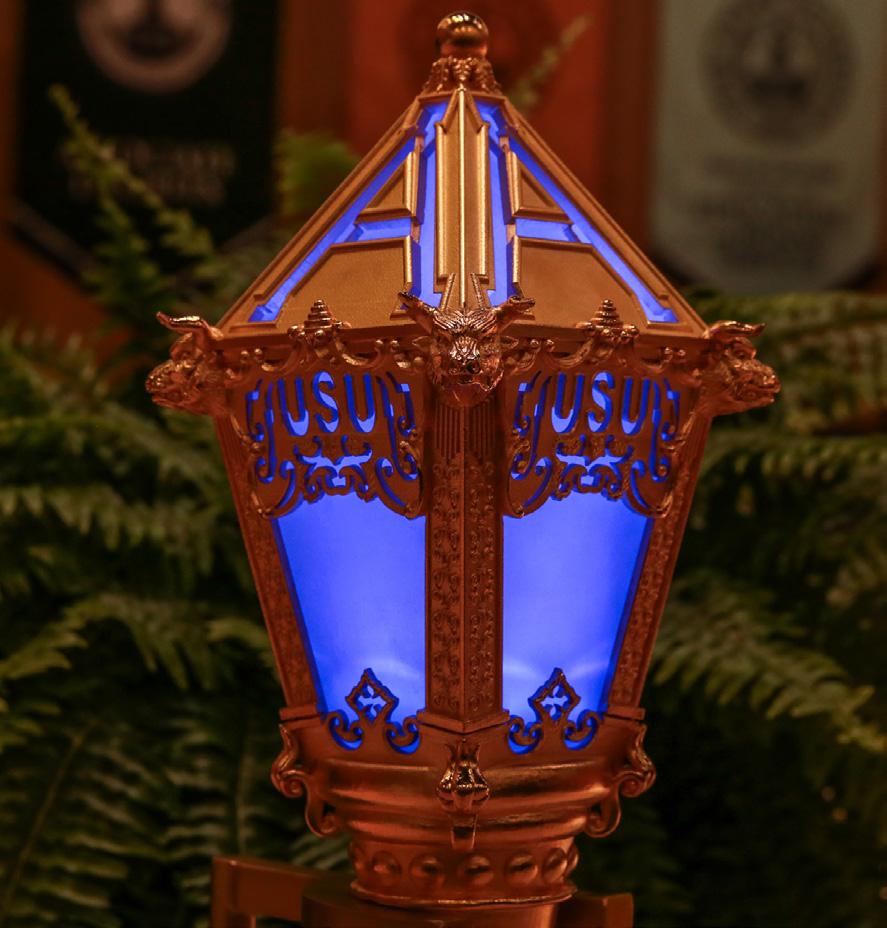
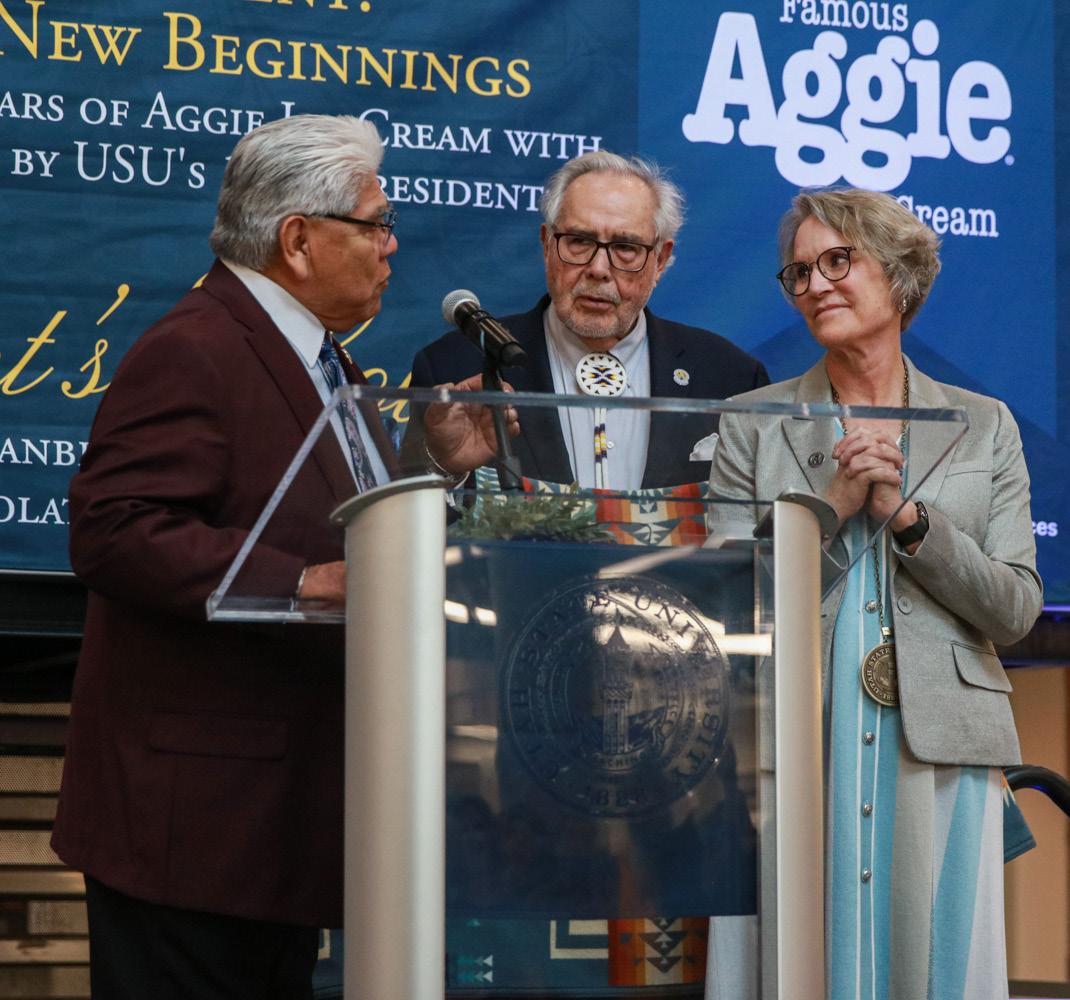
longing for all faculty, staff and students.
Geoffrey T. Landward, commissioner of the Utah System of Higher Education, shared some remarks.
“The board’s search for Utah State University’s next president was highly competitive, featuring many exceptional candidates, a credit to the caliber of this institution,” Landward said. “President Cantwell became the clear choice throughout the process and was chosen to lead the as the 17th president and newest Aggie. This institution stands alone in the Utah System of Higher Education. It is a daunting responsibility. But I am certain, President Cantwell, that your fierce intelligence, strong leadership and dedication to service not only to our students but also to the faculty, staff and broader communities will ensure your success and the success of USU.”

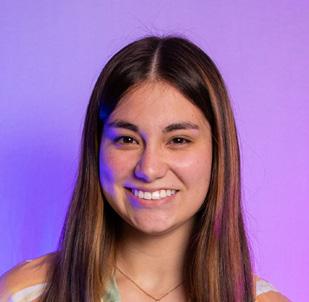
Ashley Dorius is a first-year student studying English with a teaching emphasis. She loves exploring old bookstores and being a Swiftie.
— ashley.dorius@usu.edu
Many burning questions were answered at USU’s Research Week, including what the best substitute for cream cheese in cheesecake is.
Research Week was April 8-12 and aimed to recognize students and faculty who have been involved in research this past year.
Rose Hu, associate dean of research in the College of Engineering, said this week was very important for USU in particular.
“Utah State University — we are the public research university in Utah,” Hu said. “Research is important from that perspective, but also in general as a mission of Utah State University.”
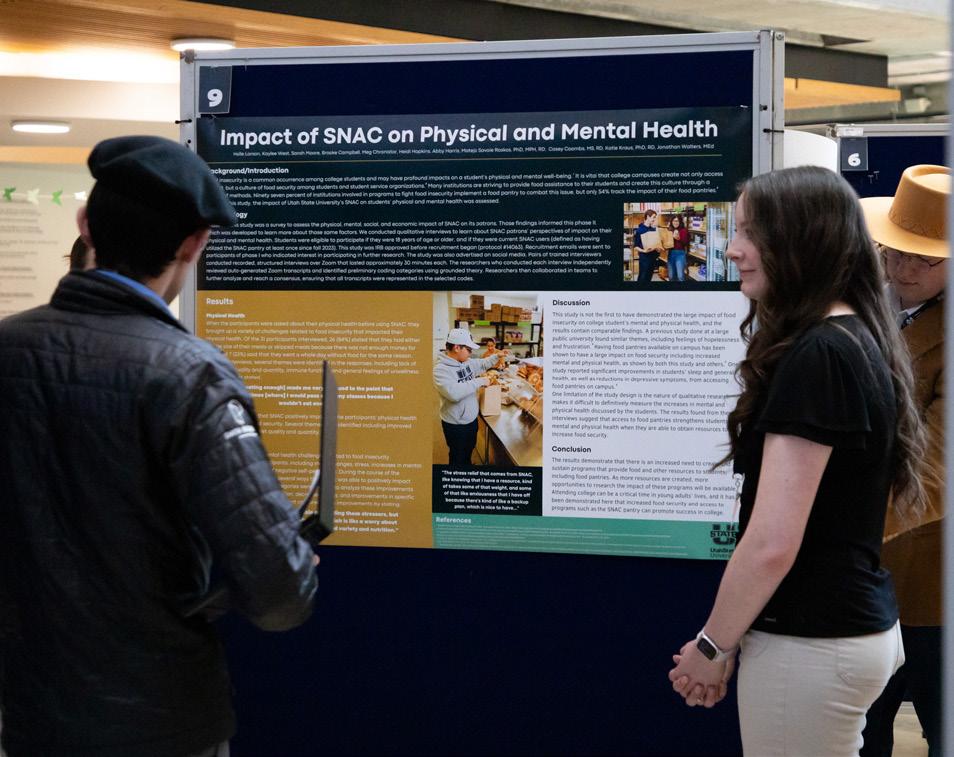
The week kicked off with the D. Wynne Thorne Lecture on Monday, where the D. Wynne Thorne Career Research Award is given to someone who has done outstanding research in their career. This year, the award was given to David Tarboton, director of the Water Research Laboratory.
On Tuesday and Wednesday, the Student Research Symposium in the Merrill-Cazier Library had students share their research through posters, presentations, performances or exhibits.
Exchange student Judith Tangerding participated in the symposium as part of her class, Science of Food Preparation.
“Everybody needed to come up with a topic,” Tangerding said. “My group — the title was nutrition and sensory analysis of cheesecake with cream cheese alternatives.”
Tangerding’s group used tofu, Greek yogurt and cottage cheese as the alternatives.
“It’s big to get more protein and less fat,” Tangerding said. “Could we substitute to fit into what the trends are
right now in the food industry?”
Tangerding said the group made the different cheesecakes and had other students try them out.
“Texture for all of them was nice, but the taste — not everyone would do it again,” Tangerding said. “The cottage cheese was good. After the control, it was second place for most favorable.”
According to Tangerding, part of the assignment was presenting their research at the symposium.
“It was nice to be in the library, and everybody with time could walk in and look,” Tangerding said. “Showing off what you did is a good feeling and having people being genuinely interested in what you’re doing.”
On Thursday, the student research celebration was open to all students and faculty. The event offered network training and the opportunity to practice what was learned.
The College of Engineering had a special awards ceremony on Thursday. Jed Hancock, the president of the Space Dynamics Lab, was the keynote speaker. Many students and faculty in the department were given awards.
Sydney Dahle, public relations specialist for the College of Engineering, said they enjoy setting up this event and hosting a poster competition for the students each year.
“I think that it’s important for us to recognize all the work and effort that students put into these big research projects,” Dahle said. “And also for our faculty — we’re celebrating the awards that they have gotten on our department level.”
Dahle earned a degree in history and participated in undergraduate research in the humanities. She said USU has research opportunities in a lot of different disciplines.
“We are one of the few schools that puts a huge emphasis on undergraduate research as well as just graduate research,” Dahle said. “It’s really important that we honor their hard work, but we also encourage them to continue doing it because they’re making really great movements and advancements in those industries at such a young age.”
According to Hu, it’s important for students to be aware of the support their college has for them.
“We want to tell the students and faculty members first: They’re doing a great job and they deserve the recognition,” Hu said. “Second, we want to let them know that as university college departments, we do value research very much.”
The week also included the Faculty Author Exhibition, which was open all week in the library’s New Books Lounge. Thirty-two faculty authors were highlighted for publishing work within the last year.
Tangerding said getting involved in research at a young age can be helpful for both the student and the adviser.
“Students sometimes have a different approach than
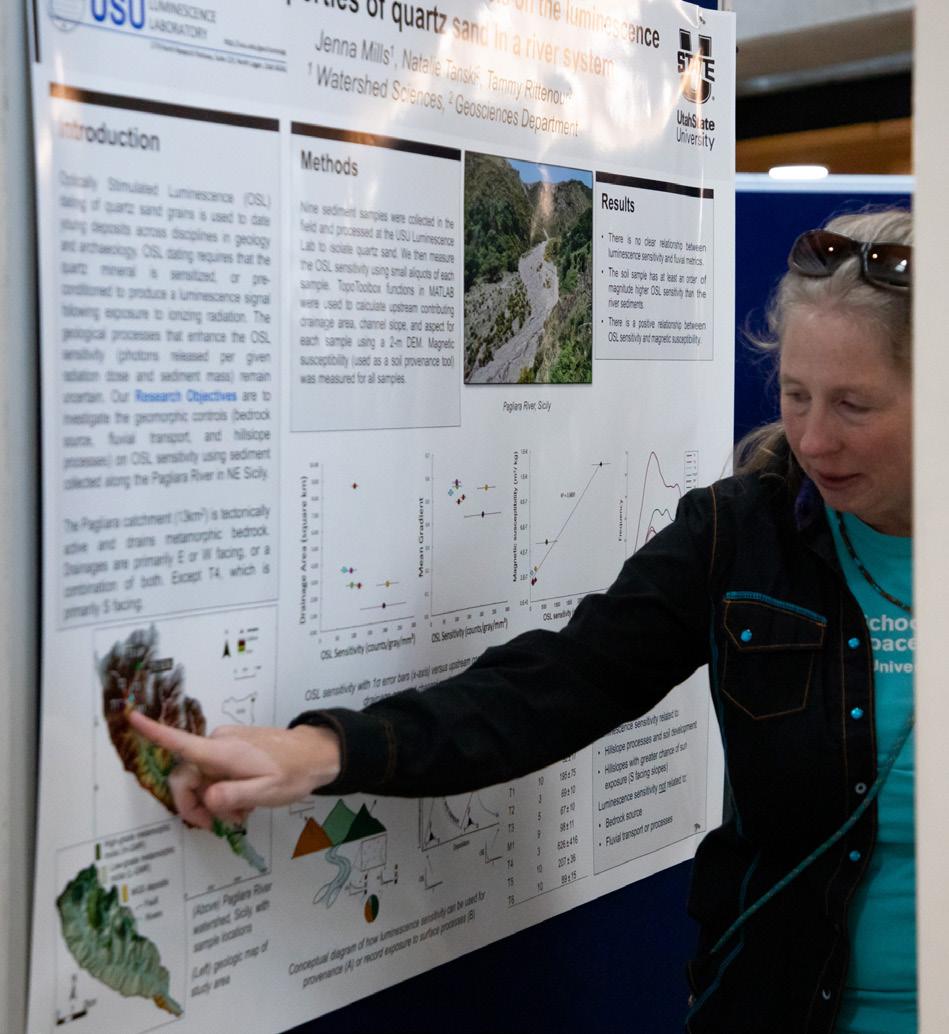
people that have been in the job for a long time,” Tangerding said. “At university, you learn a lot of new stuff. You sometimes don’t have experience and you’re like, ‘I’m just going to try, try and fail.’”
According to Tangerding, another reason to take advantage of research opportunities is the life skills the experiences can foster.
“Cooperating — students who don’t know stuff and want to try it out makes it so much more valuable,” Tangerding said. “You get knowledge from someone but you can give them something yourself.”
For more information on research week, visit research. usu.edu/researchweek.
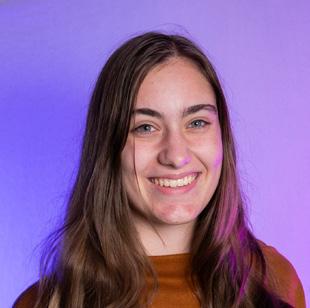
— ella.stott@usu.edu
The bustling gymnasium of Green Canyon High School was full of excitement on Friday, April 12, as the Logan community gathered for the semi-annual wheelchair basketball event organized by Common Ground Outdoor Adventures. This event marked the organization’s 31st year of operation. Their mission is to enhance the lives of youths and adults with disabilities through quality outdoor recreation.
SaQuoyah Boxx, the program director of Common Ground, was instrumental in making the event a success.
“Our goal is to create inclusive recreational experiences,” Boxx said. “Events like these allow individuals to engage in sports and activities they might not have access to otherwise.”
For the event, they had volunteers running concessions and the scoreboard as well as refereeing the game.
“We have about ten volunteers here tonight, including Cameron, who is one of the refs. He has been a fantastic addition to our team,” Boxx said.
Cameron Park, an aviation student at Utah State, joined
Common Ground in August and has quickly become an integral part of the organization. As a volunteer, Park has been involved in various activities, including rock climbing, hiking and snowshoeing.
“It’s incredibly rewarding to be part of an organization that challenges stereotypes and provides opportunities for everyone to participate in outdoor activities,” Park said. The wheelchair basketball event featured the Logan Fire Department and the Wheeling Wildcats, a semi-professional team from Ogden.
Within the first 30 seconds of the game, the Wildcats were up with 20 points. Six of those points were made from players’ shots, while the rest were donations from fans in the crowd.
One unique aspect of the event was the “bribing the ref” process where spectators could donate money to give their favorite team additional points—a fun twist adding to the excitement. Every dollar donated equated one point towards the desired team.
Four minutes into the game, the Logan Fire Department made their first layup, but the Wildcats were quick to soar down the court to make a three pointer.
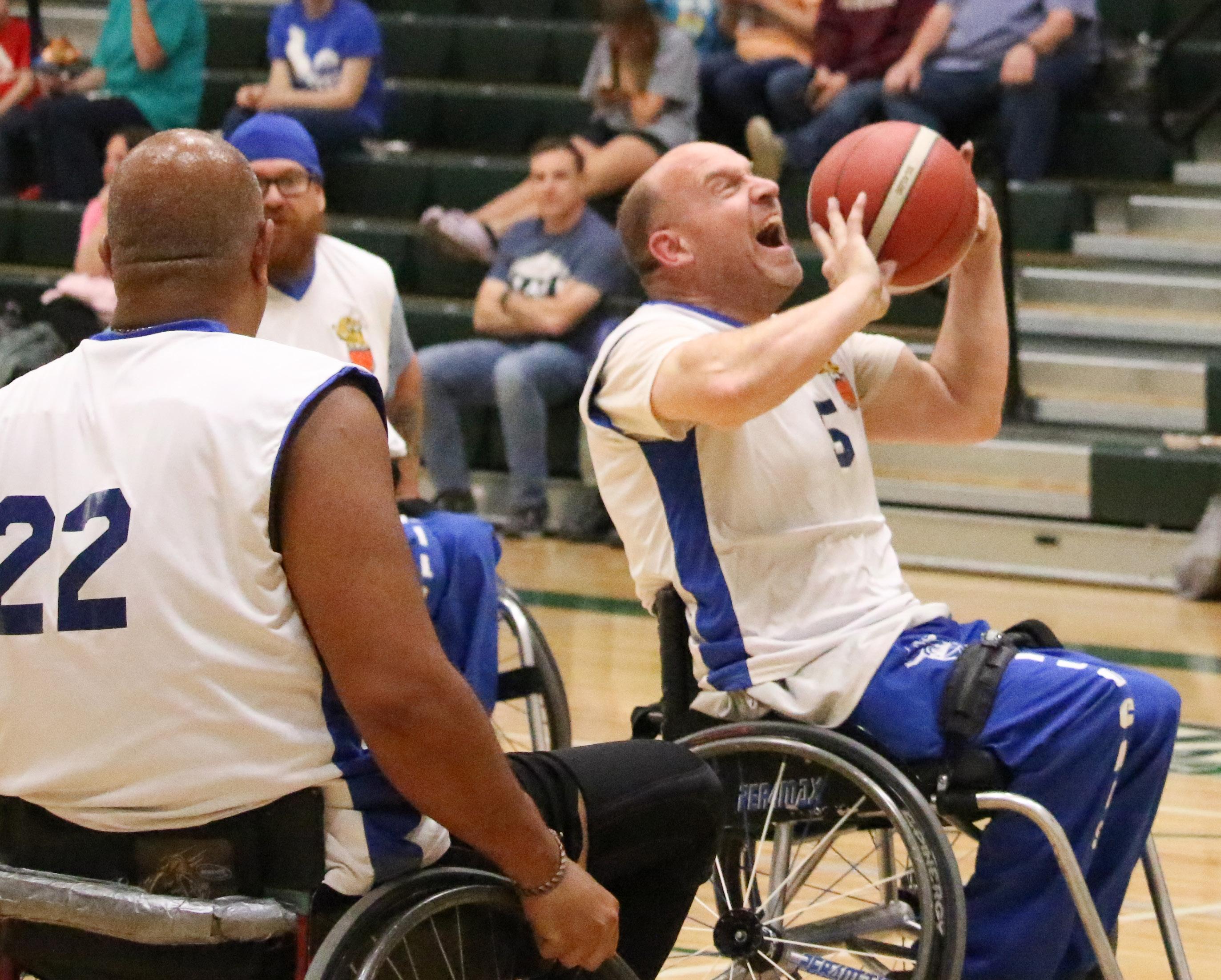
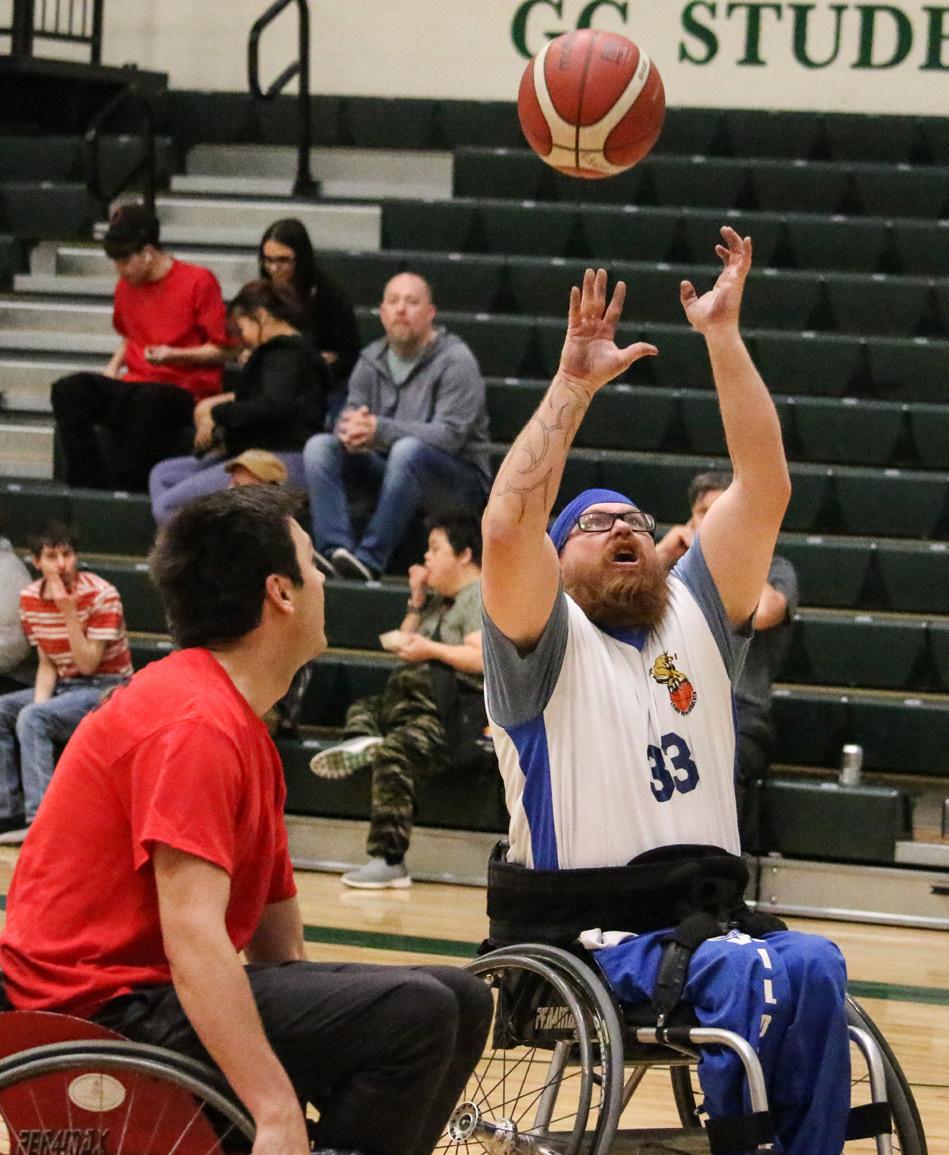
All’s fair in wheelchair basketball, especially with the ability to bribe the refs. By halftime, the Wildcats were up 38 points, 141-104.
During the ten minute break at half time, spectators were welcomed onto the court to perform wheelchair races.
While there were no official sponsors for this event, donations were collected to cover expenses, such as food and venue rental. Additionally, three raffle prizes, ranging from $125 to $200 in value, were awarded to lucky attendees.
With four minutes left on the clock, the score was all tied up at 175-175, but in the end, the Wildcats conquered the Logan Fire Department, 253-191.
As the evening drew to a close, the Wildcats celebrated their victory with a plastic trophy and, more importantly, bragging rights for the next six months.
Both Boxx and Park expressed gratitude for the community’s support and looked forward to future endeavors with Common Ground Outdoor Adventures.
For more information about Common Ground Outdoor Adventures and upcoming events, contact Common Ground at info@cgadventures.org.
Addie

Google “What is the hardest thing to do in sports?” and most subsequent lists will have hitting a baseball or softball near the top of the list. Plenty of Utah State University’s softball opponents have had this difficulty increased each time they step into the batter’s box to face an Aggie pitcher.
After a lackluster campaign last season and a coaching change, the Aggies have been much more competitive, at least partially due to fielding a better pitching staff. In 2023, the three best pitchers based on earned run average combined as a team to give up 4.87 runs per game. This year, the three best pitchers based on ERA have combined to only give up 3.71 runs per game.
This year’s pitching staff returned sophomores Hailey Mclean, Sydney Saldana and Tess Bumiller, along with senior Jessica Stewart. They also welcomed transfers like graduate student Katie Zuniga and redshirt sophomore Denay Smith.
Zuniga joined the Aggies after an extensive career at Utah Valley University in which she appeared in 103 games for the Wolverines. During her last year at UVU, she led the team with a 4.12 ERA and has only built on her promising 2023 campaign this year with the Aggies. In 20 appearances in the circle this year, she has lowered her ERA to 3.62.
As a graduate student, Zuniga has plenty of experience but noted how the entire staff has worked together to support each other when they take the field.
“Coming in as a fifth year, I have played a lot of softball, but just coming in, working together and just being a really big support staff and supporting each other no matter what has been huge,” Zuniga said. “I know whoever goes in after me is going to do their job. Overall, we’re really supportive of one another.”
Zuniga has split time this season starting games and coming out of the bullpen in relief, but her preparation and confidence in her teammates has led to her success. “Personally, I pray each time before I enter the game,” Zuniga said. “That just helps me a lot to stay calm and collected and remind me that we have a really good pitching staff. That’s helped tremendously as I’ve come to a new school for my fifth year.”
One of the biggest internal improvements coach Todd Judge has made this year comes from Jessica Stewart. Last year Stewart was limited to three appearances, where she posted a 4.85 ERA and allowed 10 hits in 4.1 innings pitched. Stewart has broken out this season, lowering her ERA to 4.01 and leading the team with 53 strikeouts in 68 innings pitched.
It’s easy for fans of LaRee and LeGrand Johnson Field to notice when Stewart enters the game. She constantly displays her fiery energy by emphatically complimenting her catcher’s ability to frame her pitches or letting out a joyful scream after recording a strikeout that might be heard by students relaxing on the Quad.
Stewart’s emotional way of pitching isn’t meant to entertain the crowd or intimidate the batter. Instead, it is an expression of her giving as much effort as possible on the field.
“I definitely think I live in the moment a lot,” Stewart
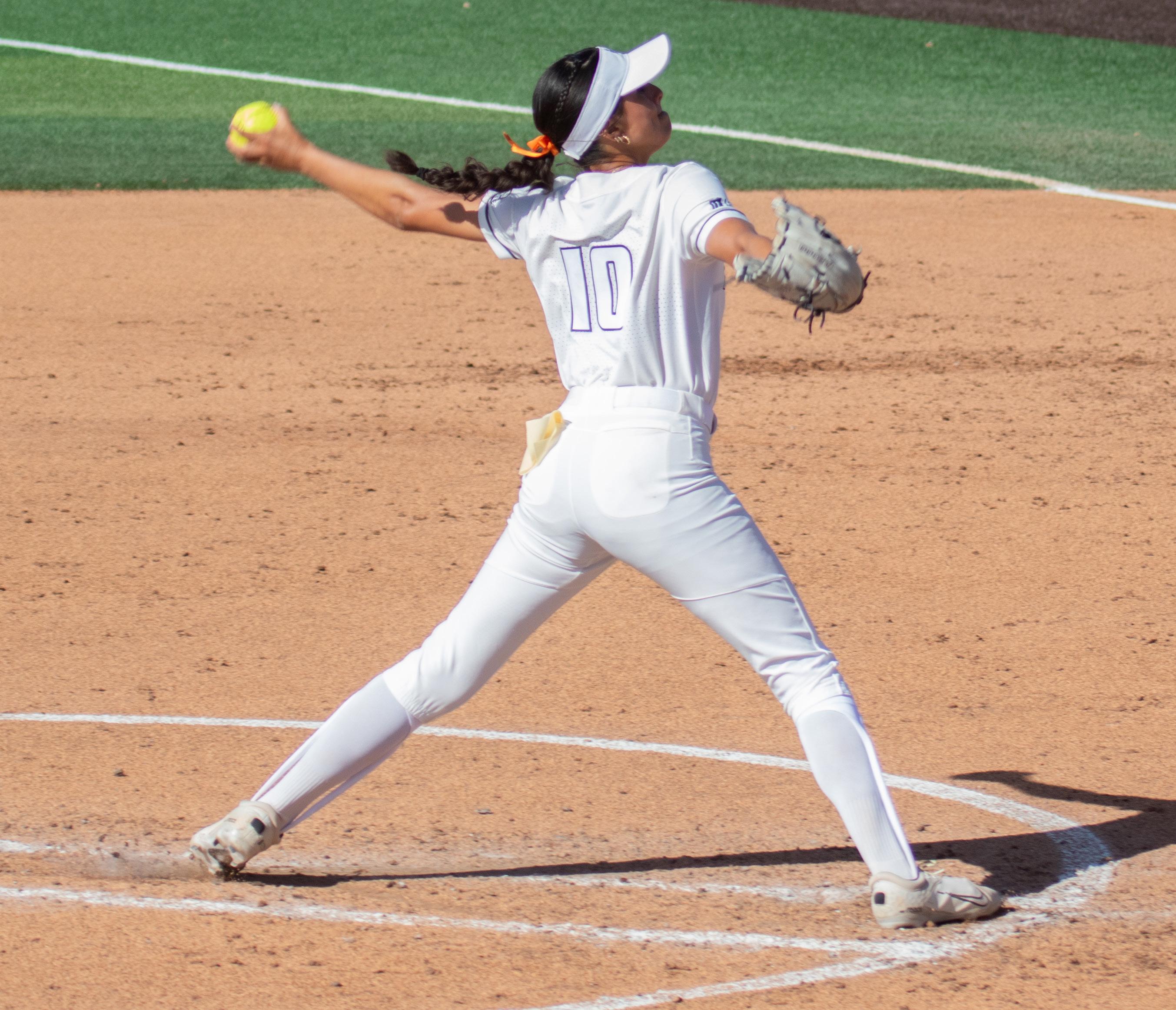
said. “I have grown so much since the very beginning of, you know, my career here at Utah State and it’s just about the want and the desire and I think that that definitely carries out there to the mound with me.”
Stewart has also tried to limit the regrets she has as she completes her senior season this year.
“It’s my last year, so I might as well lay it all out there. What do I have to lose?” Stewart said. “If I’m tired at the end of the day, then I know I did my job. It’s all about just giving it my full 100% effort and it’s fun that way. It’s really amazing to feel what I feel when I get done at the end of the day.”
Stewart and Zuniga could not be more different in the circle for the Aggies. Zuniga is more mild-mannered and focuses on inducing weak contact in the way she pitches, whereas Stewart’s intensity is palpable as she tries to blow her fastball past hitters. Pitching coach Mia Trejo says the contrast might actually help the two see better results.
“We have different styles, different approaches and different speeds as well, and I think that makes it more difficult for hitters within the game to adjust,” Trejo said. “Having someone like Jess who is really a bulldog
out there and then having someone like Katie who is a little more crafty is awesome to watch. It’s like a puzzle and the coolest part has been to put those puzzle pieces together.”
Trejo was also complimentary of the relationship the entire pitching staff has built off the field going into the season.
“When you’re on a team with 23 girls, sometimes you can clash a little bit,” Trejo said. “But this pitching staff is one and they’re friends on and off the field. They truly do have each other’s back and that shows daily.”
Stewart, Zuniga and the rest of the team, will wrap up their season with a three-game series against San Jose State between Thursday, May 2 and Saturday, May 4 in Logan as the Aggies continue their pursuit of a conference tournament bid.
Henry Wright is a junior studying political science, American studies and anticipatory intelligence. He loves to travel, watch sports and spend time outdoors.

Sudoku puzzles are provided by www.sudokuoftheday.com.
Last week’s solution:




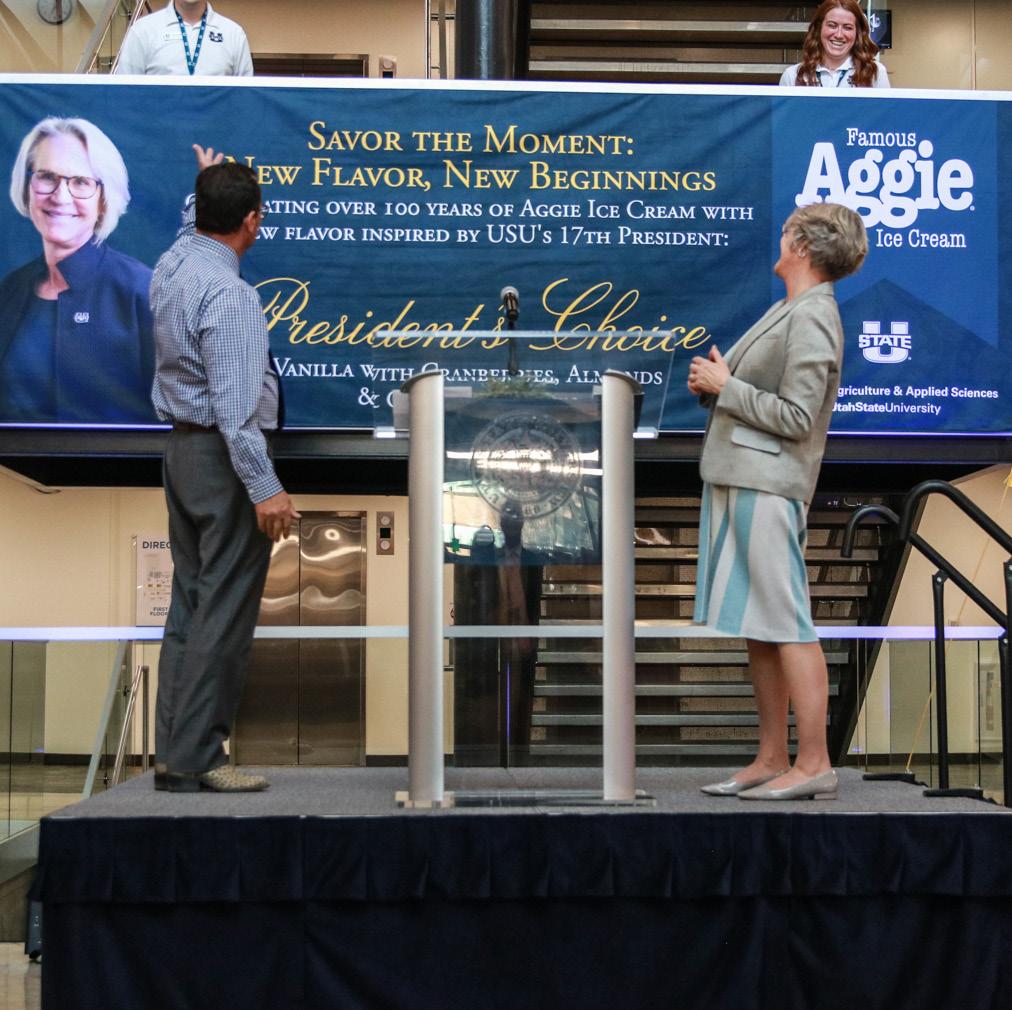 PHOTO BY Claire Ott
PHOTO BY Claire Ott